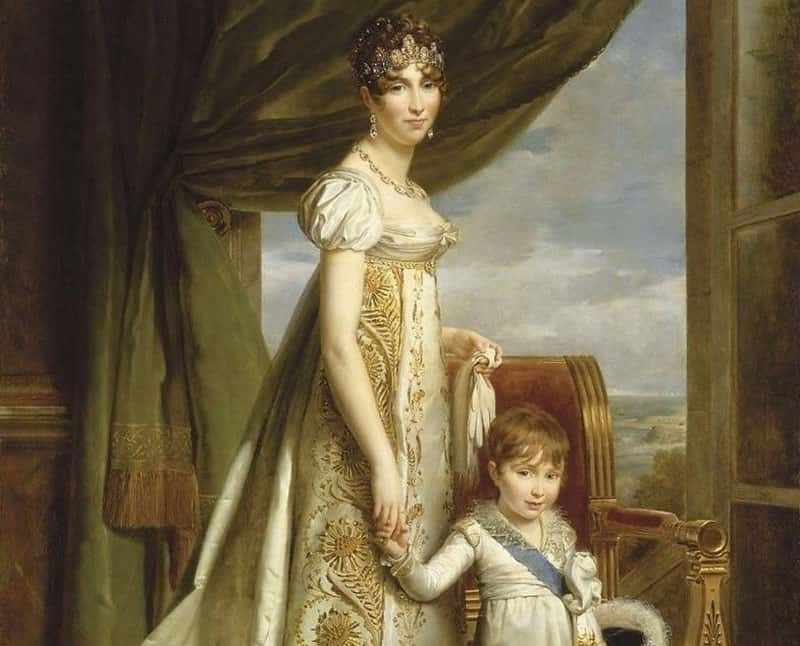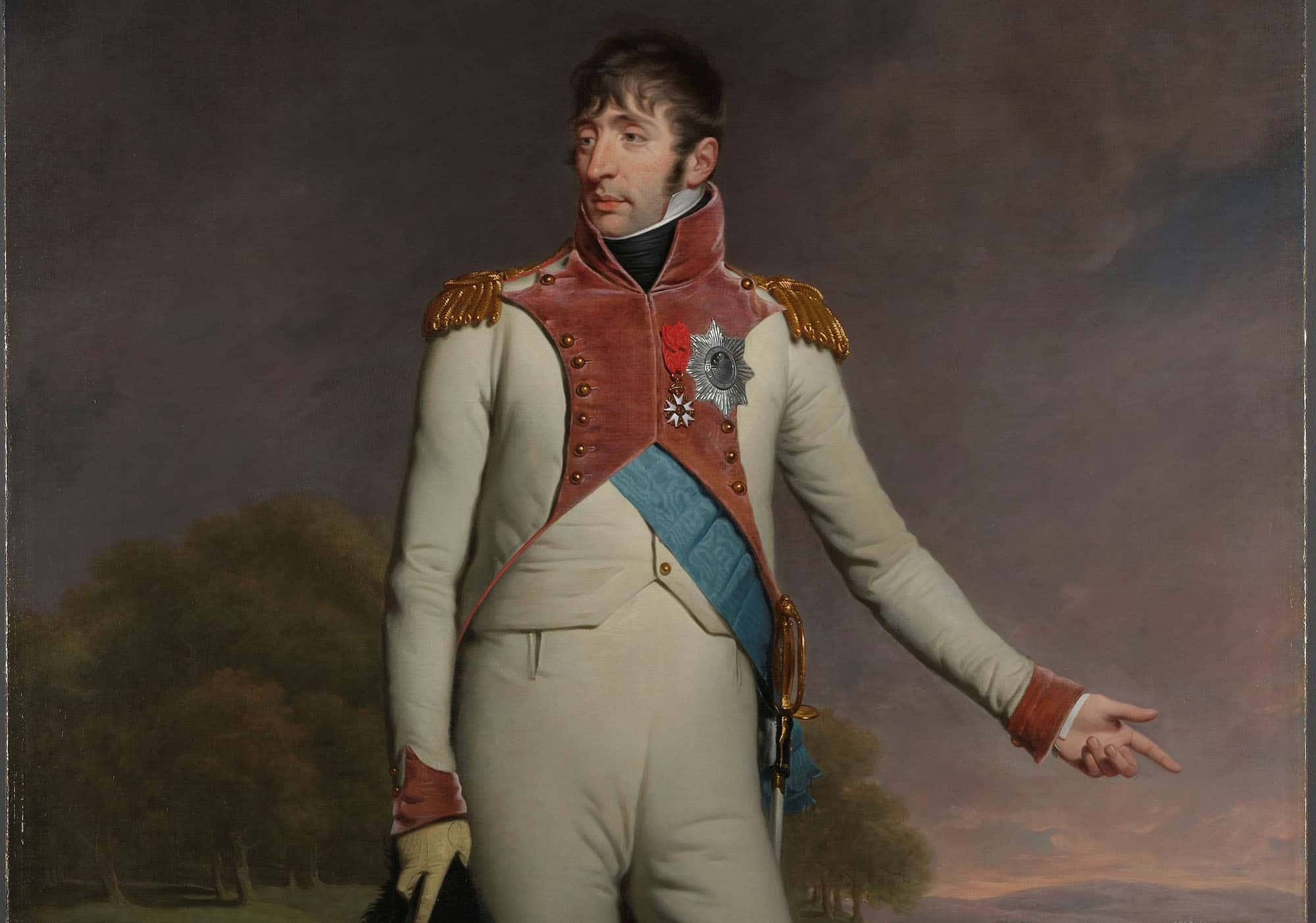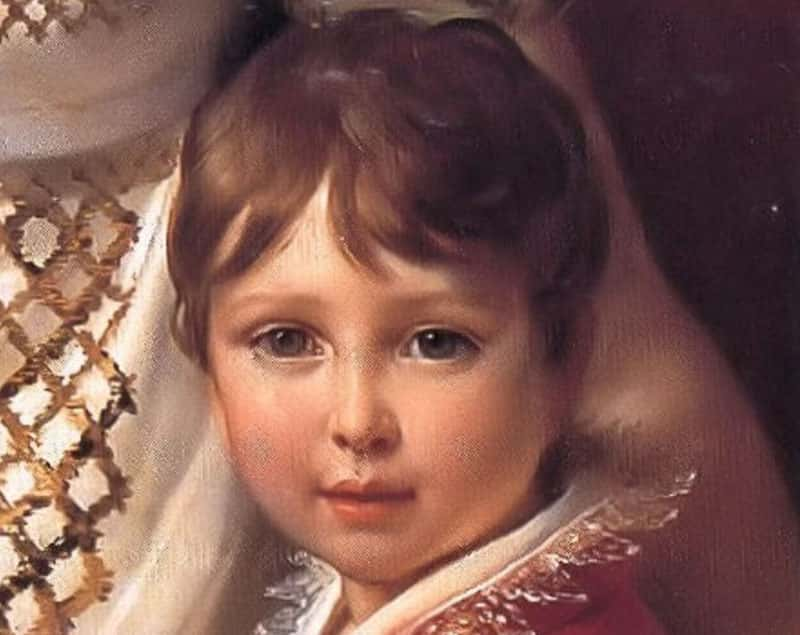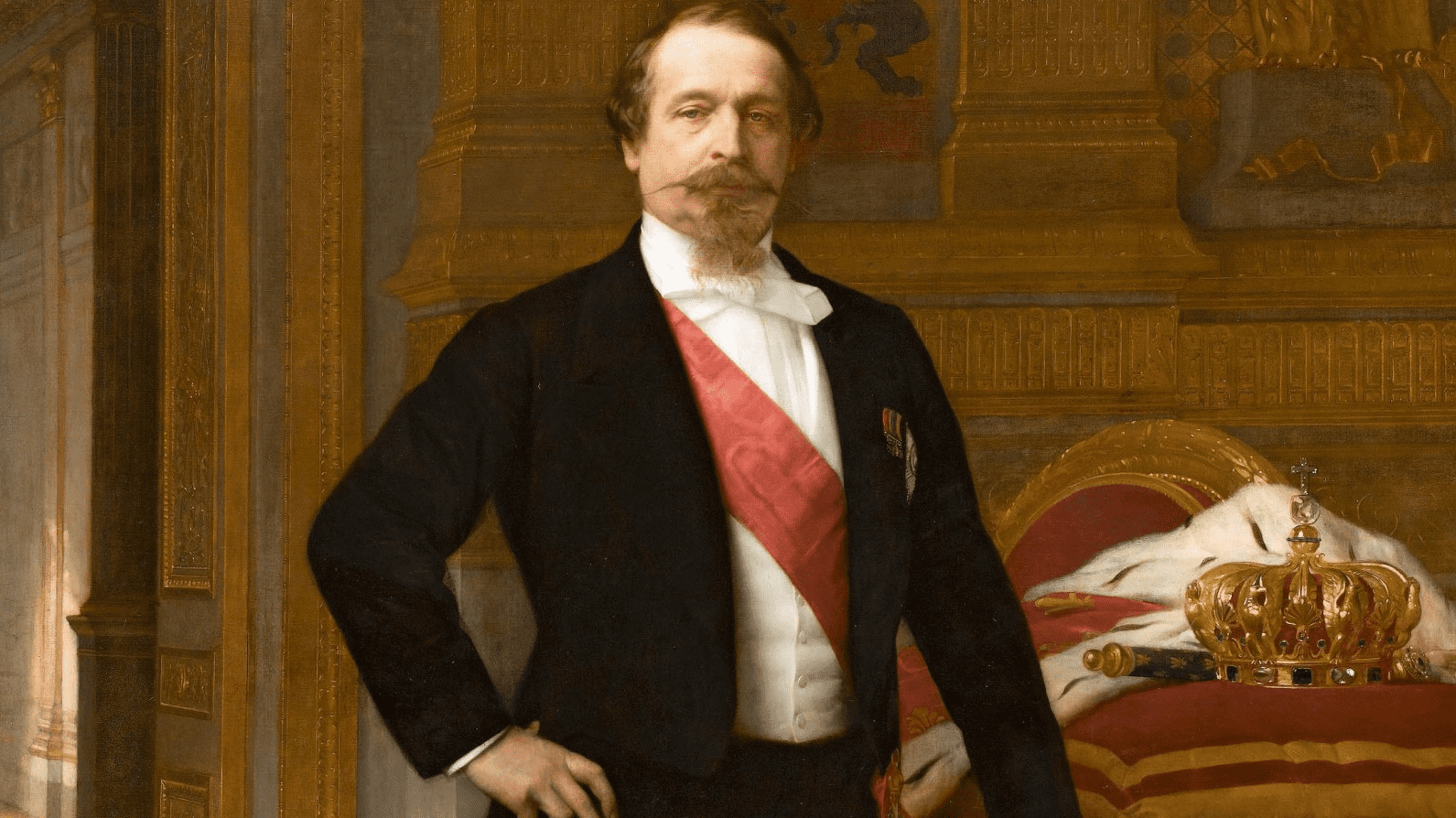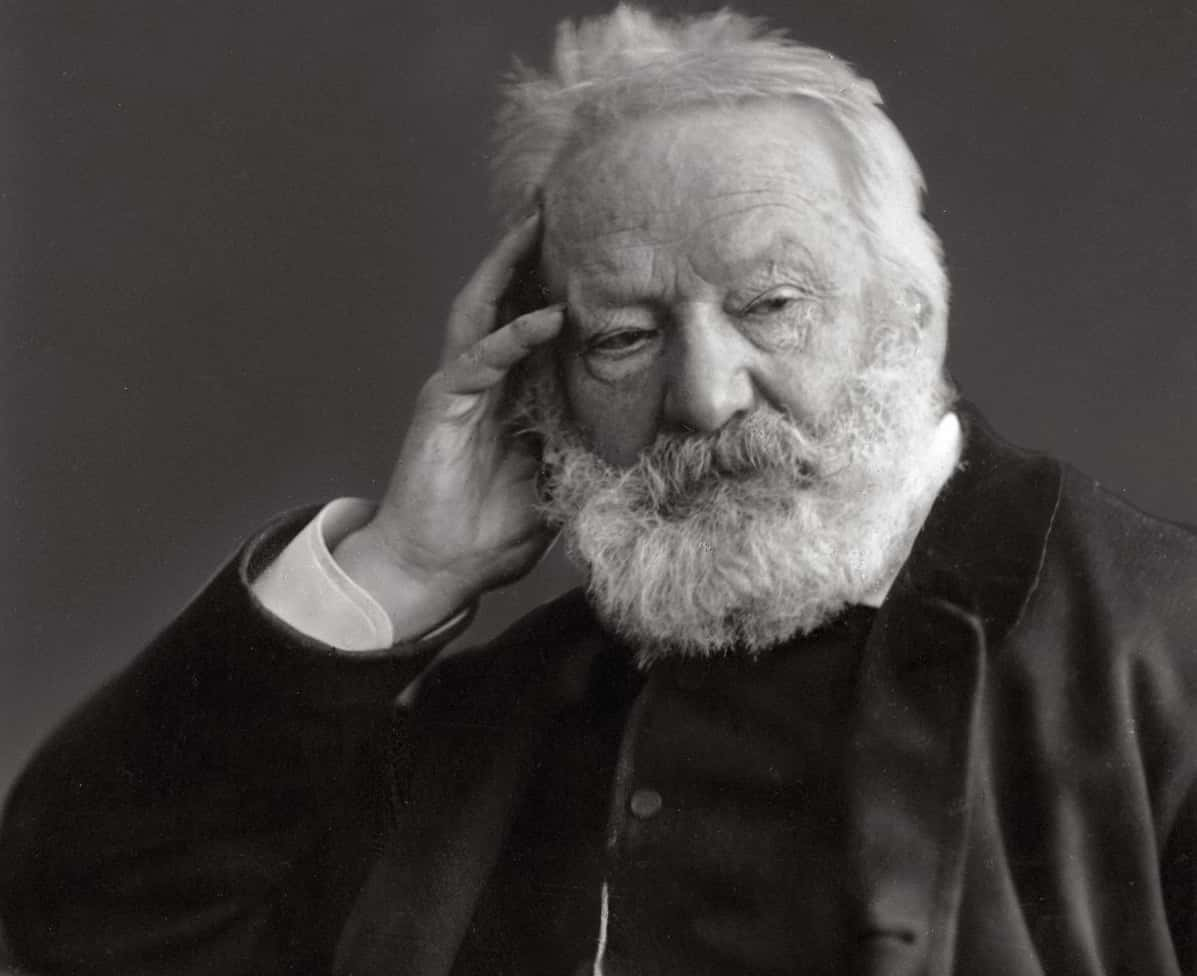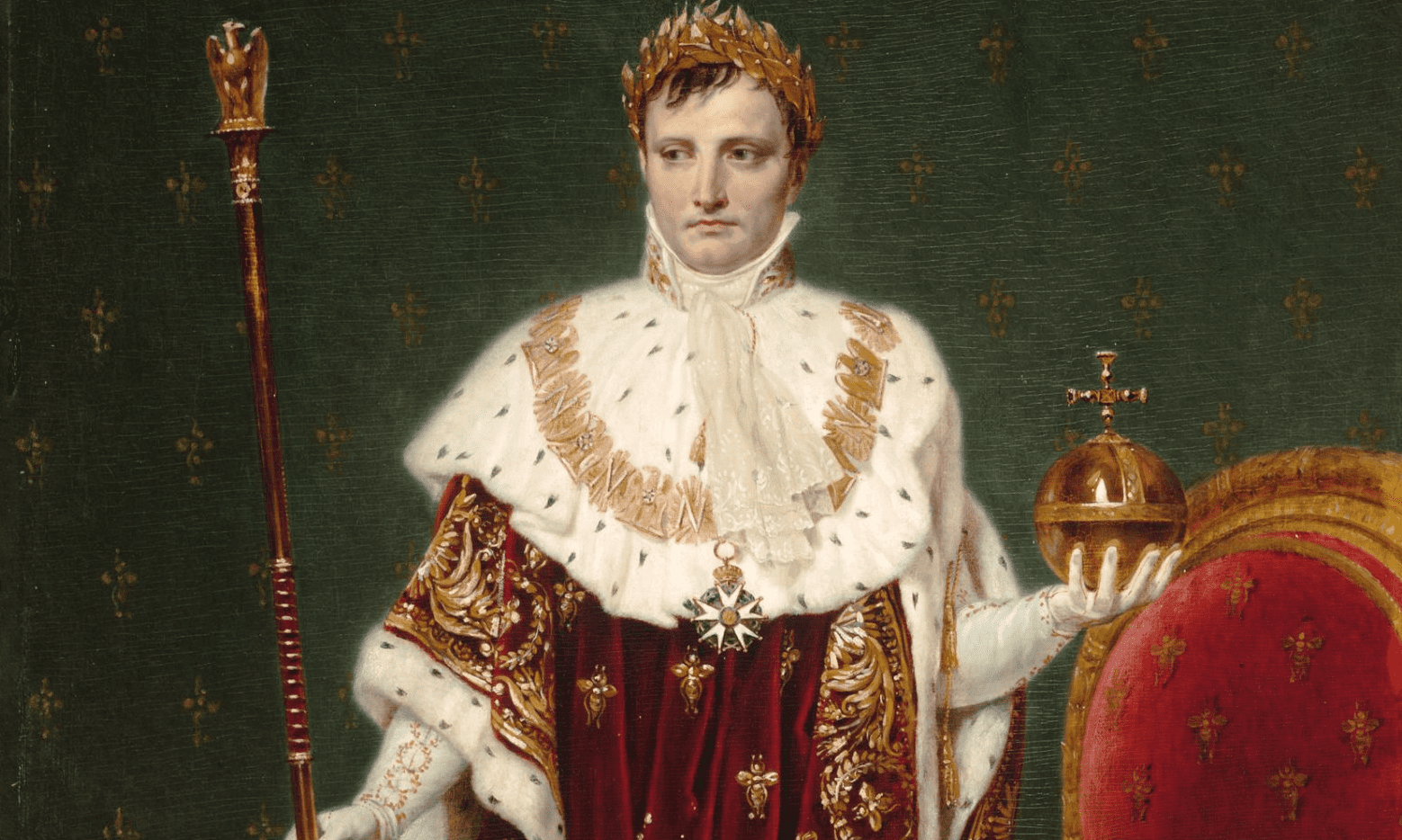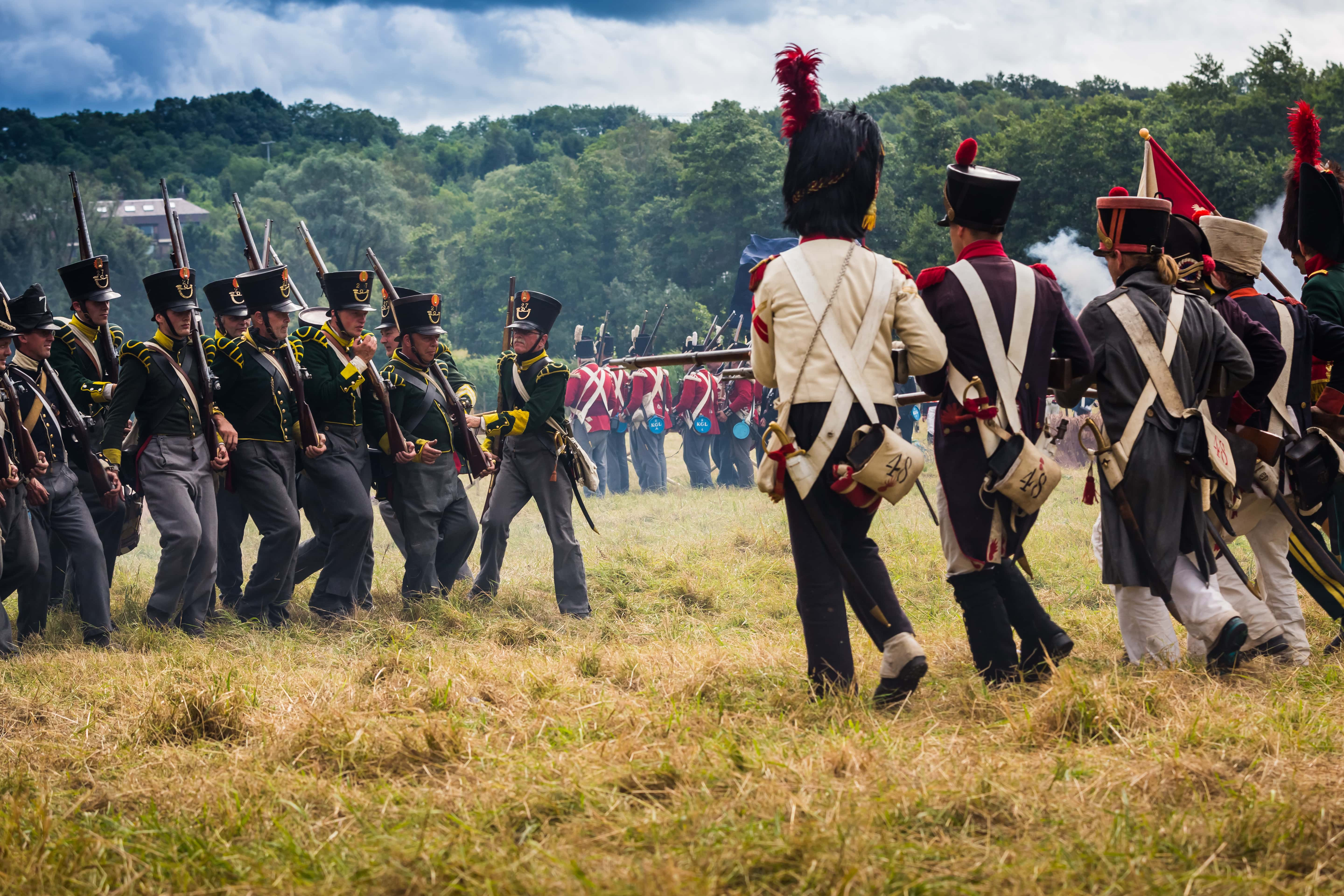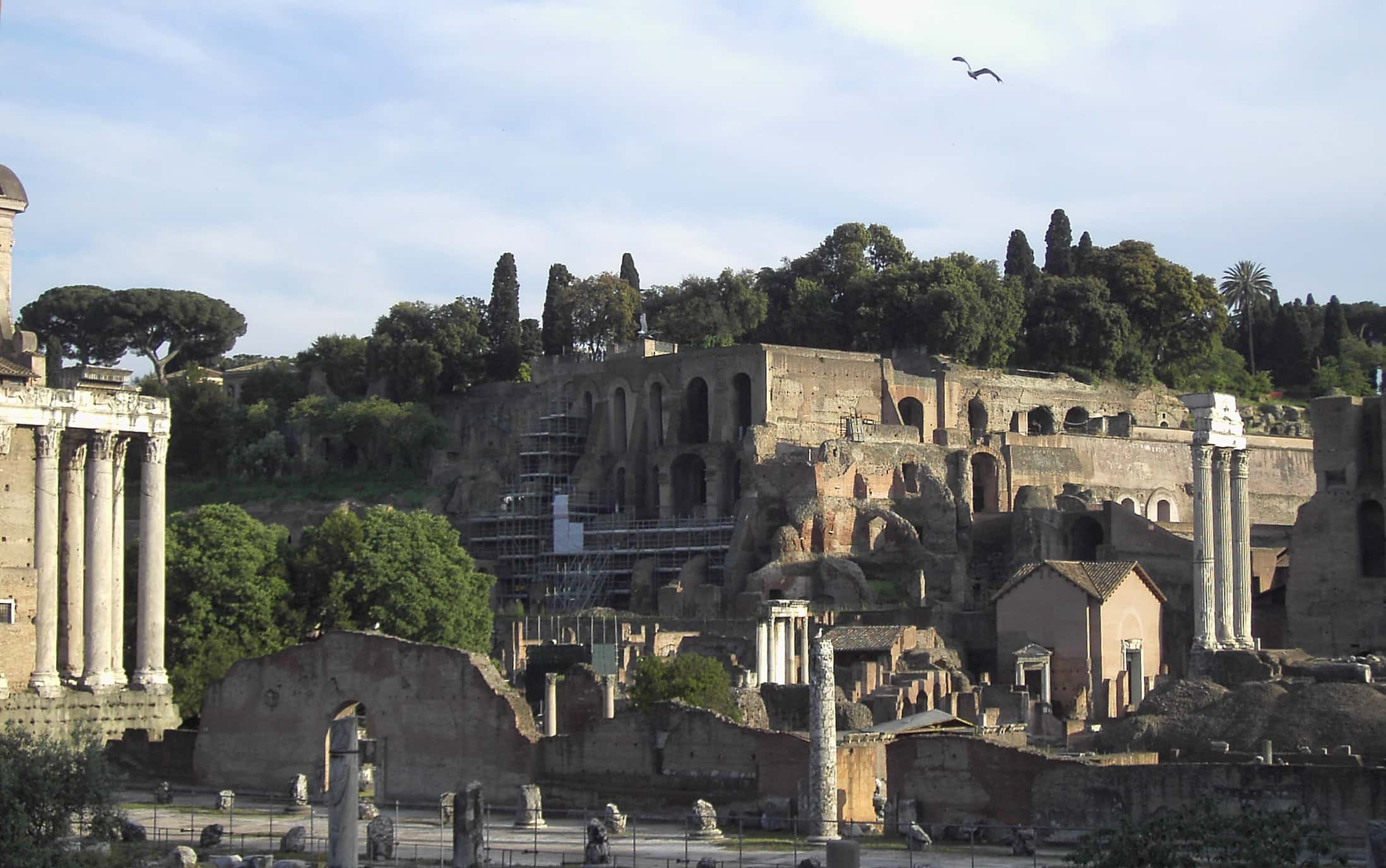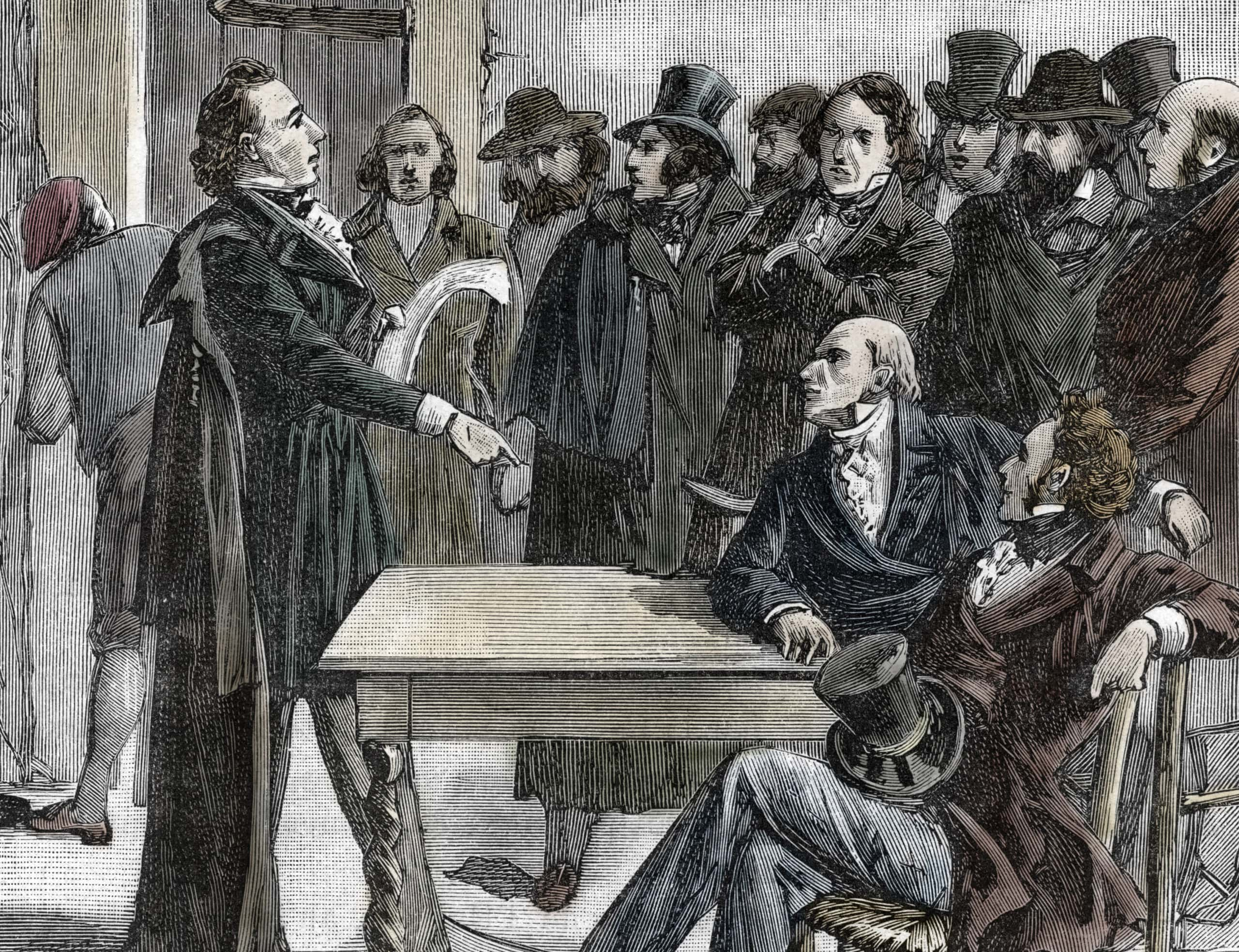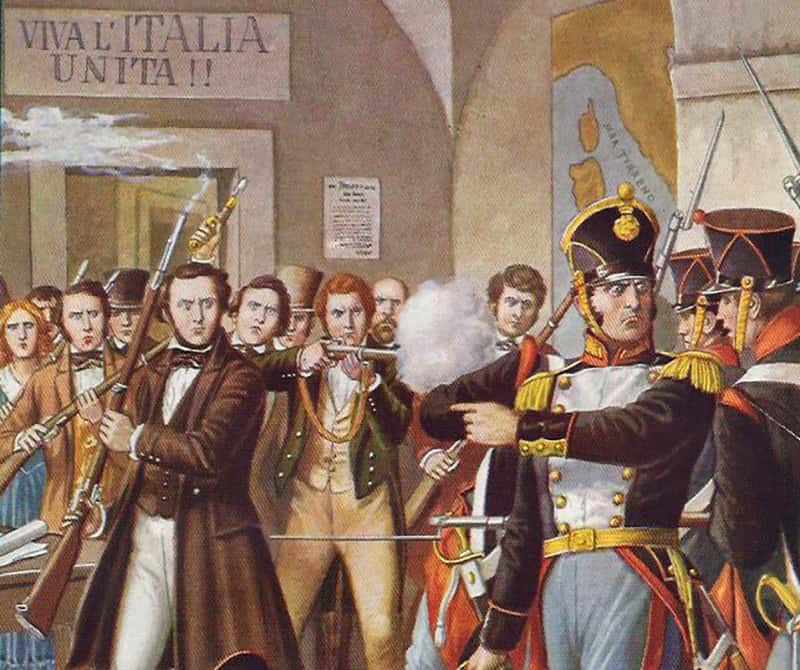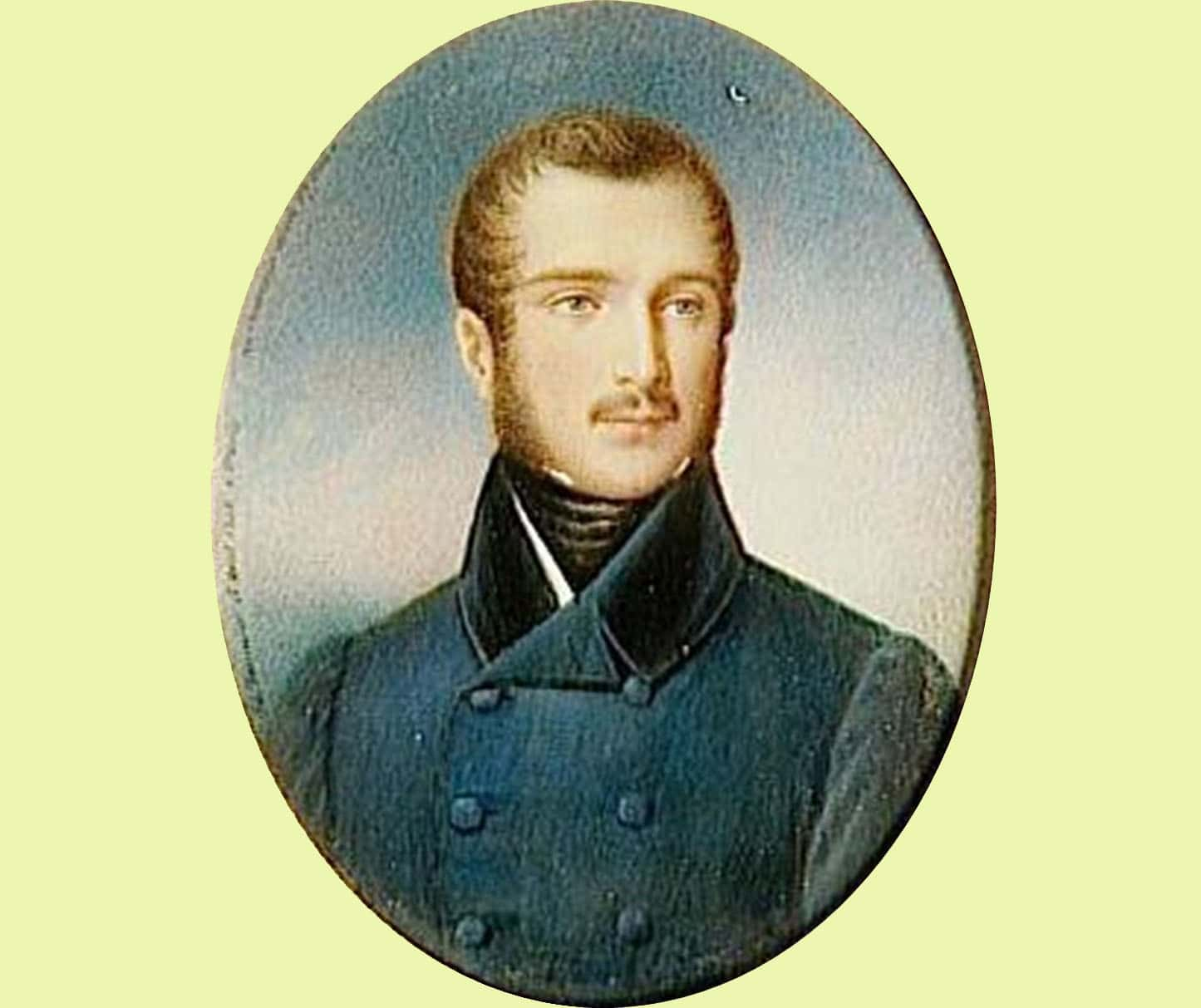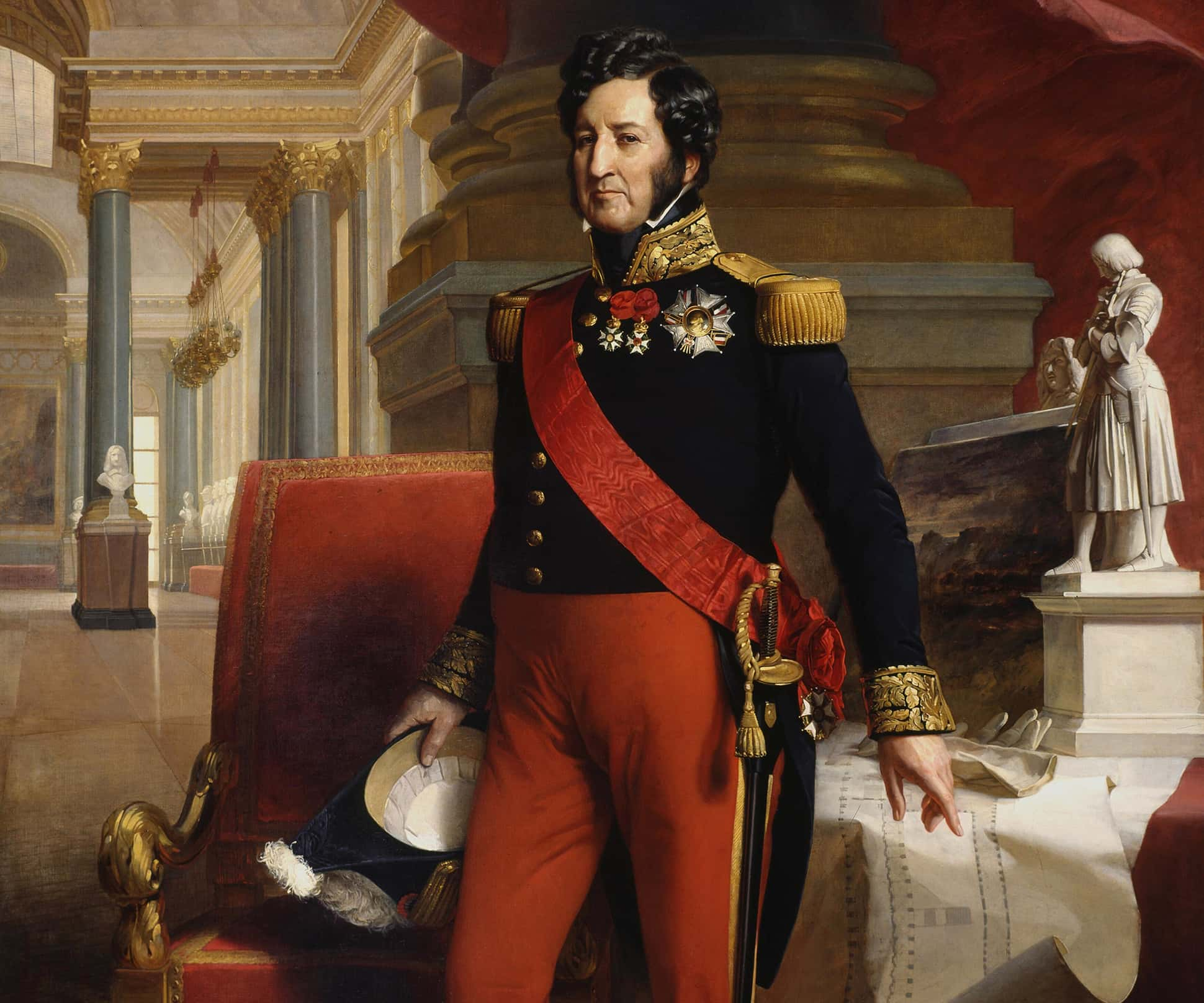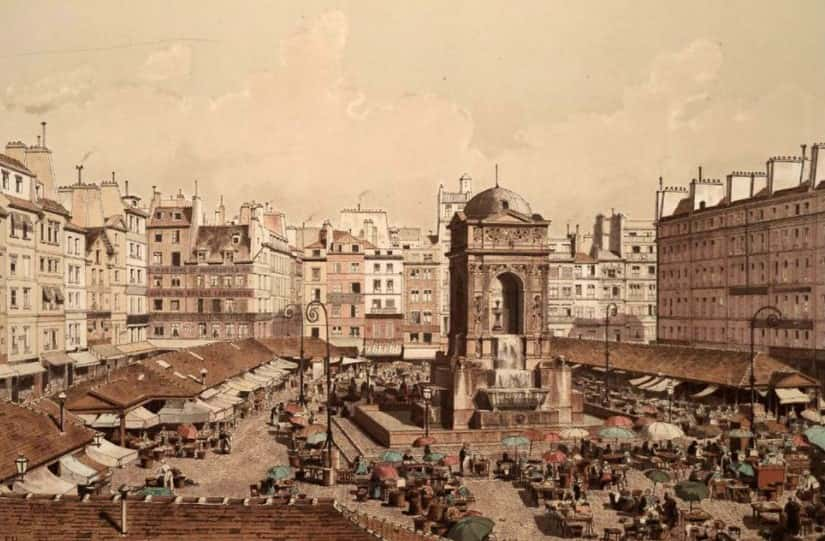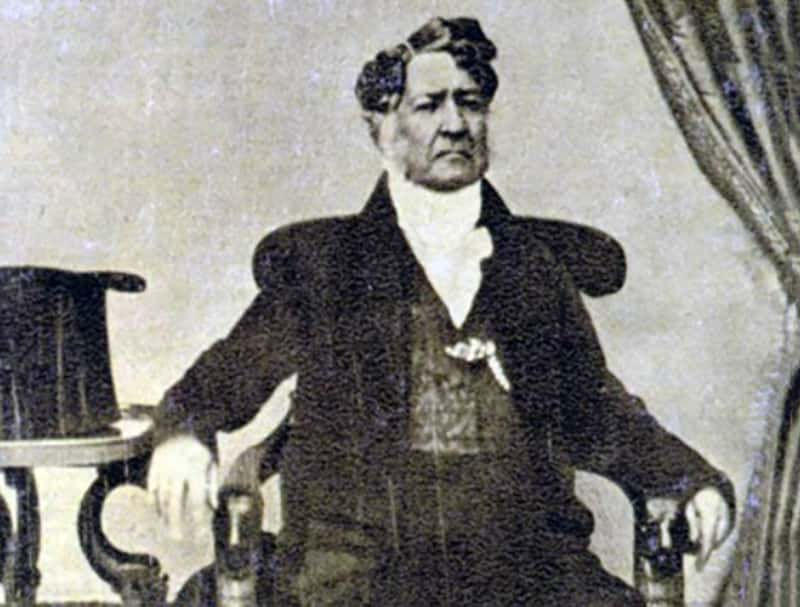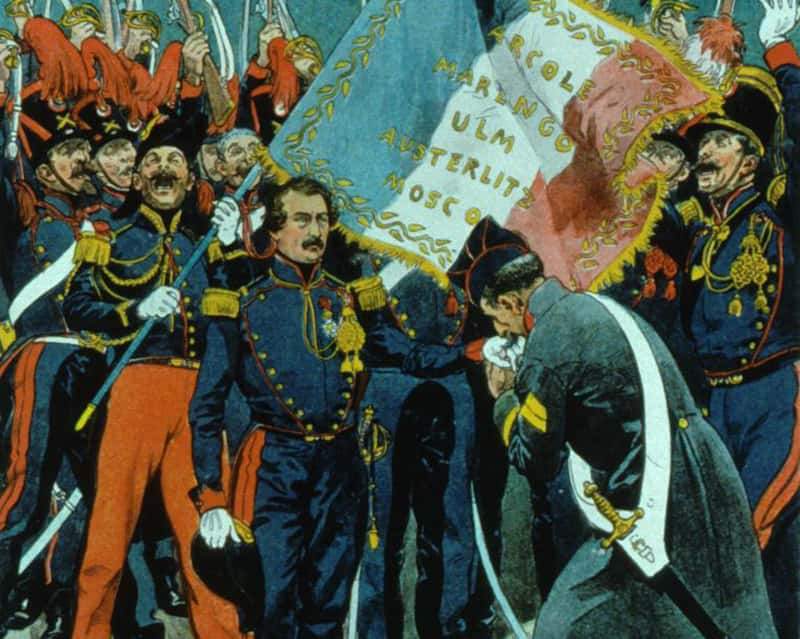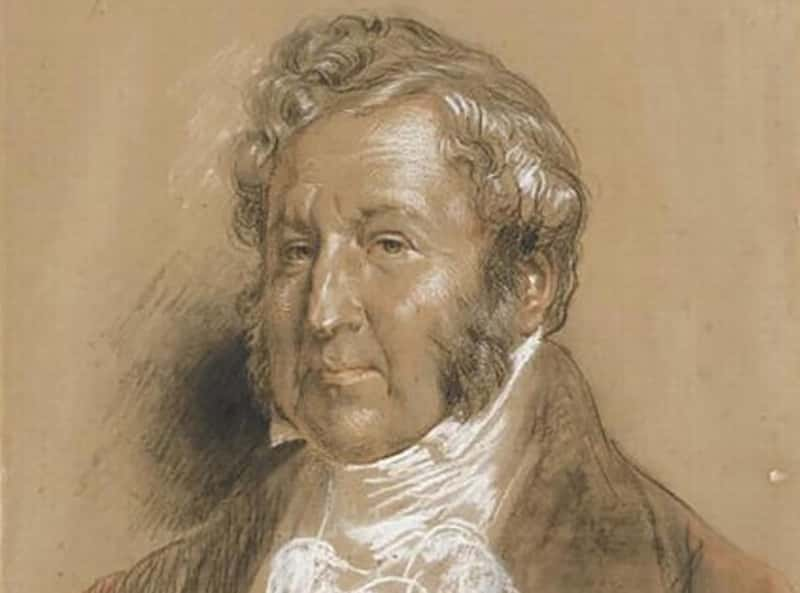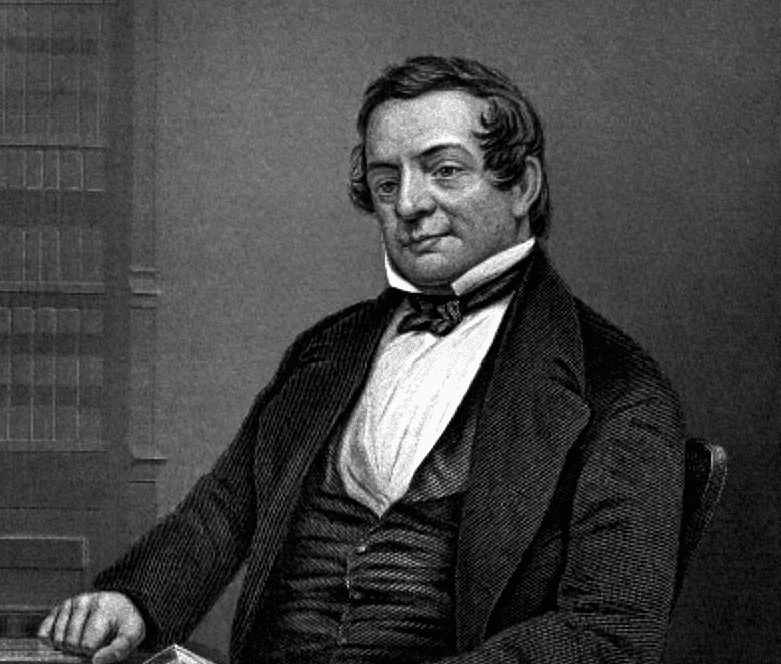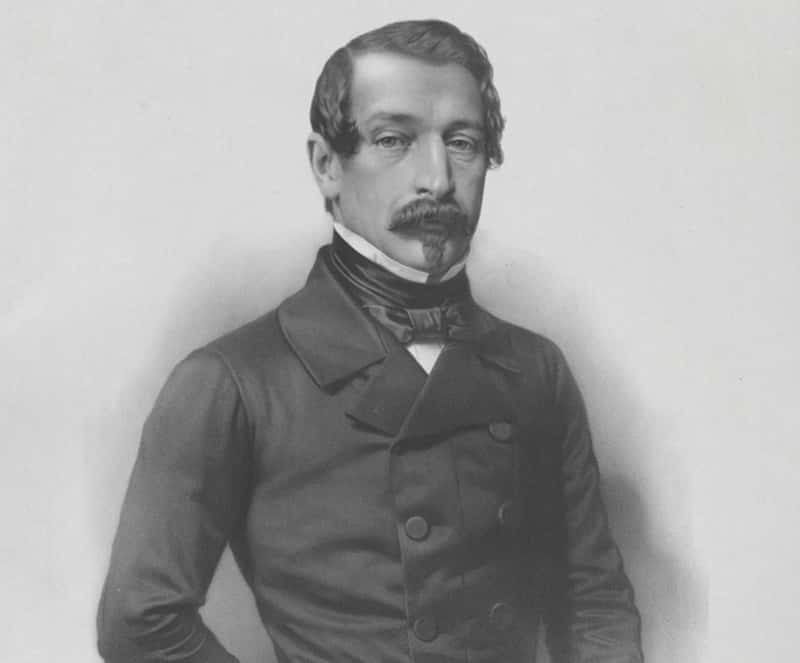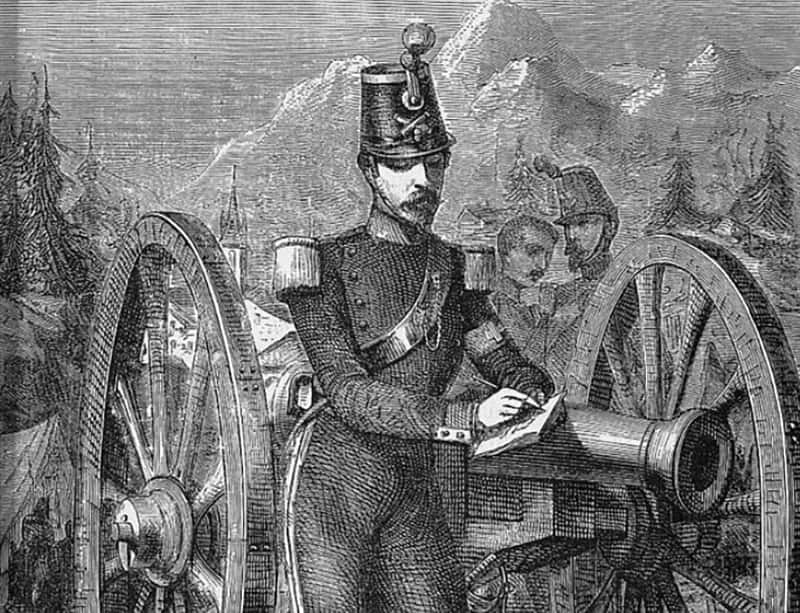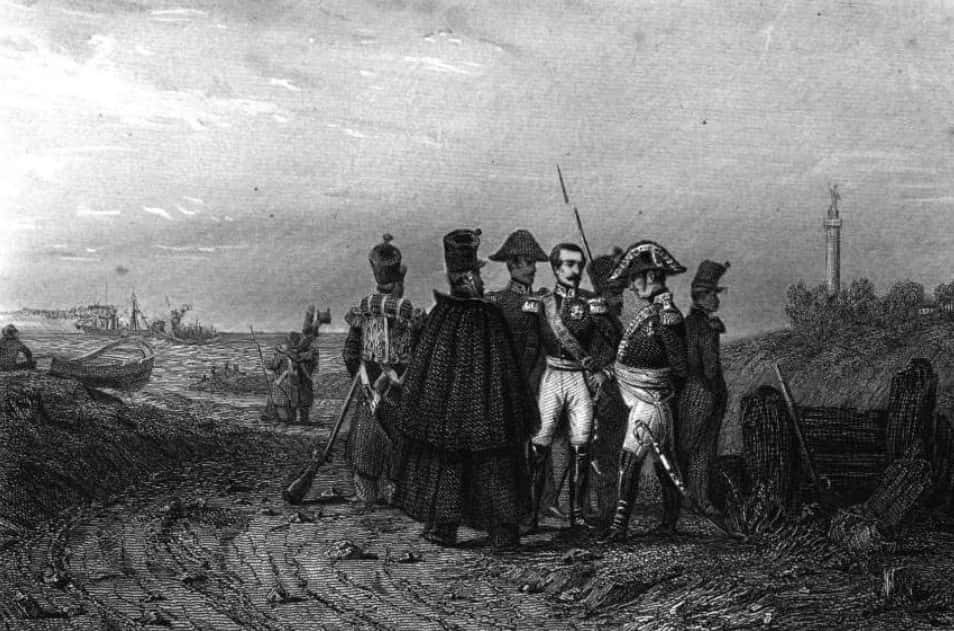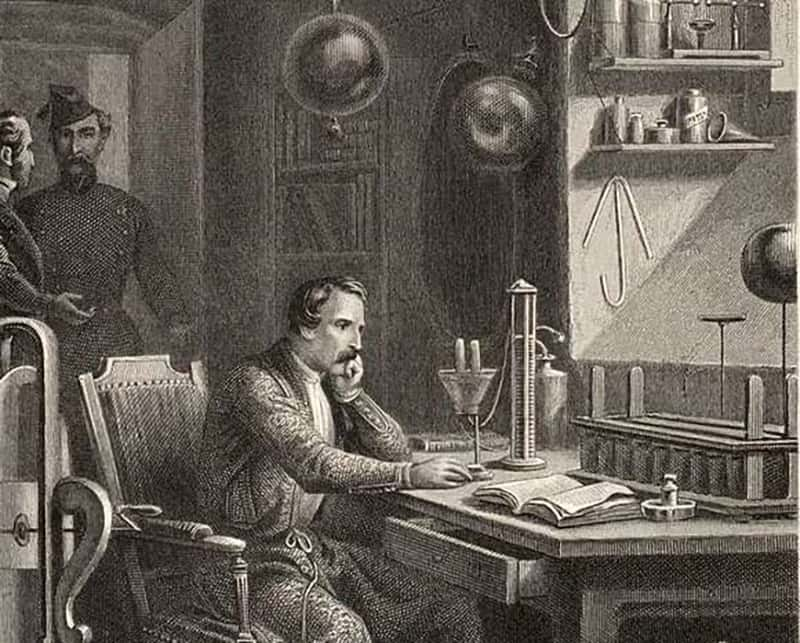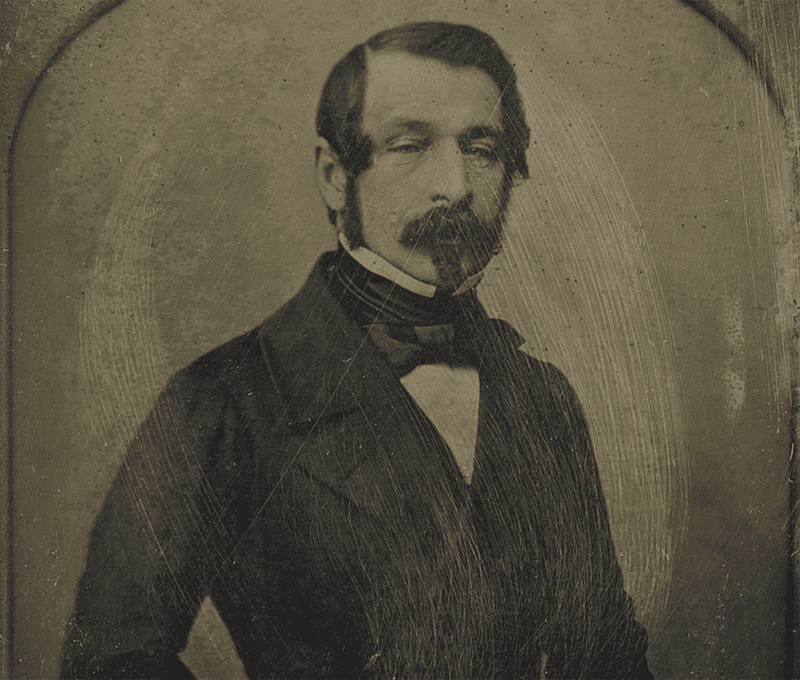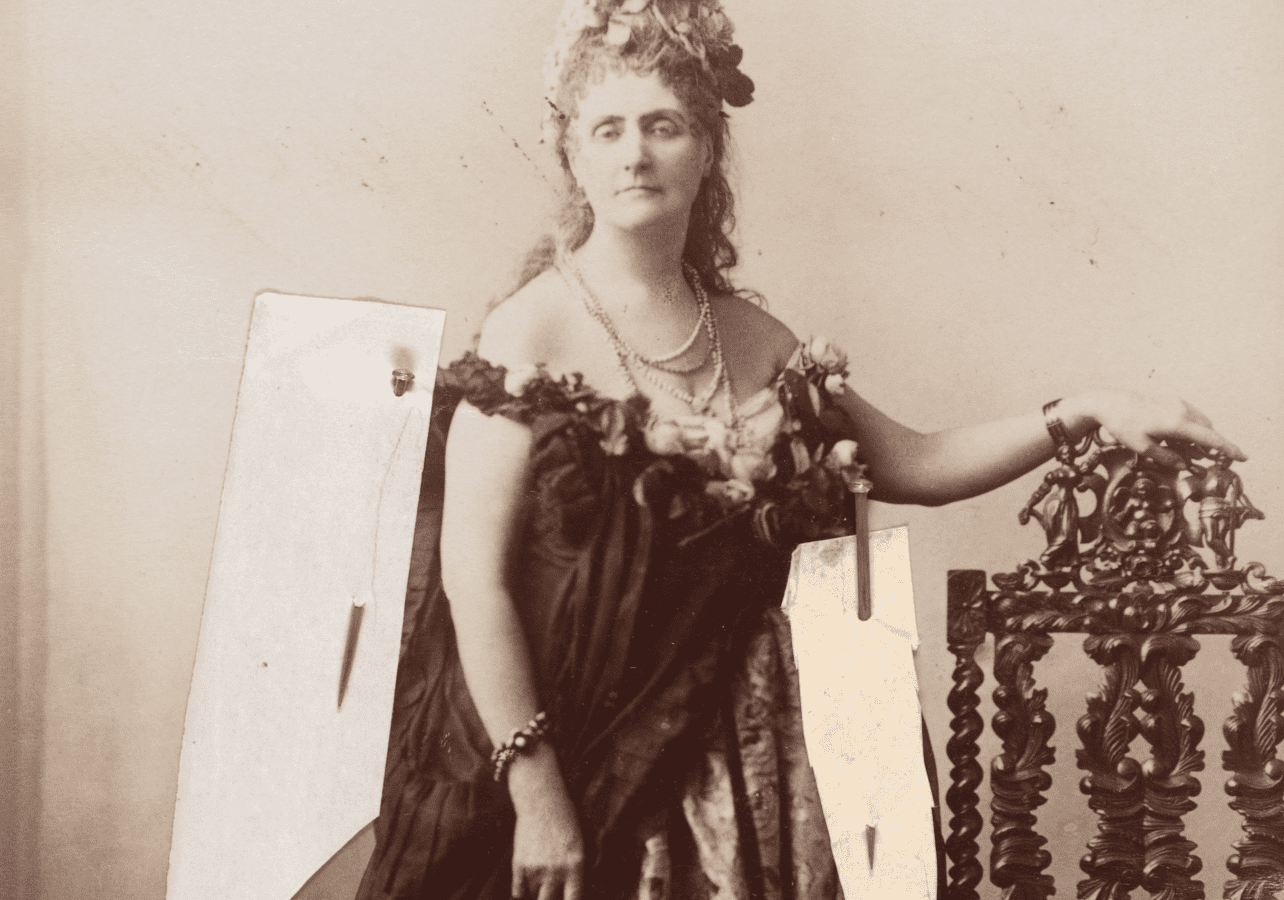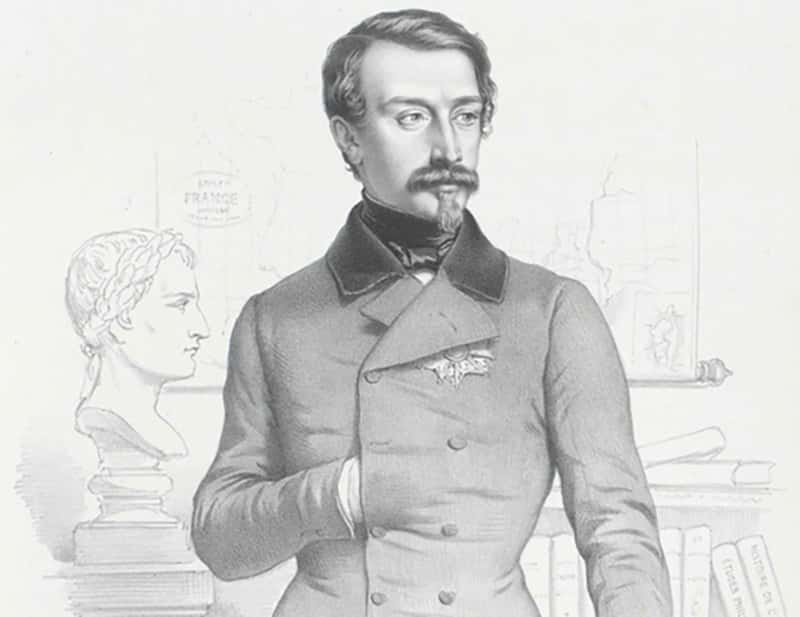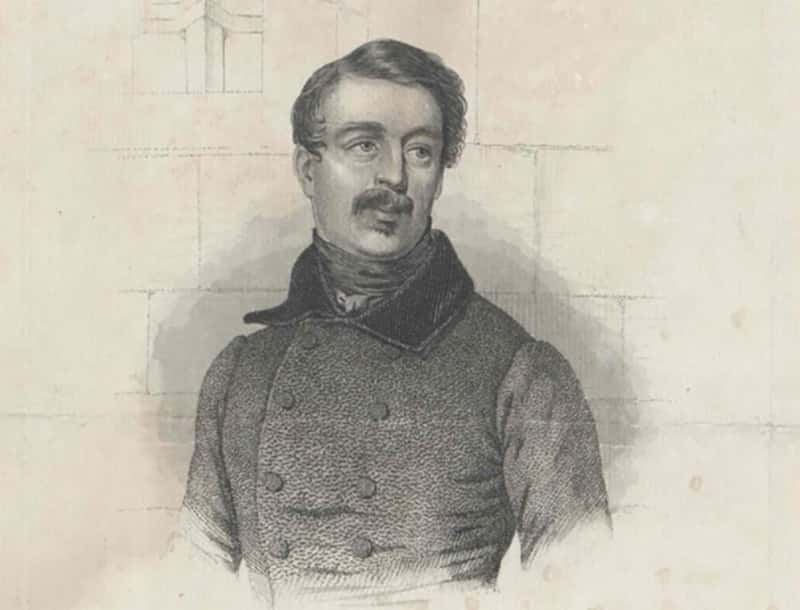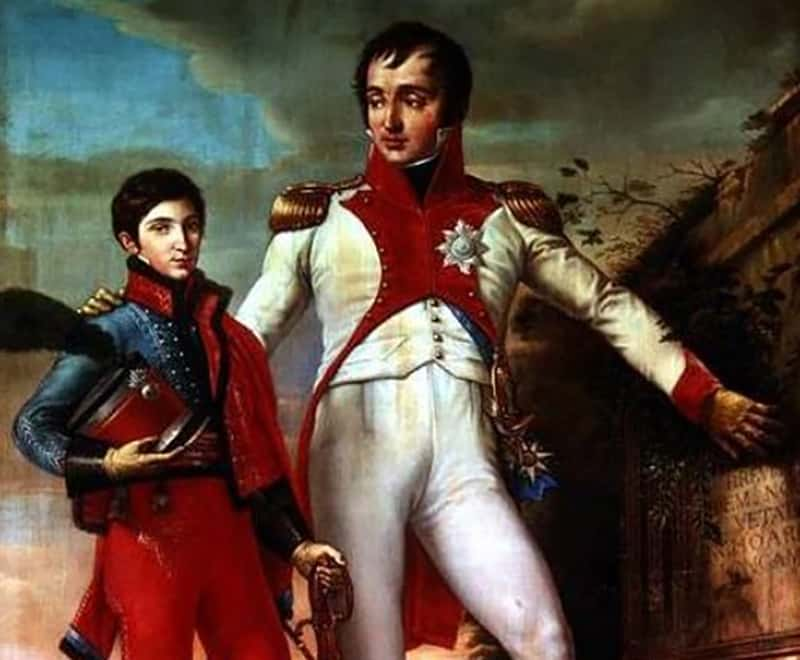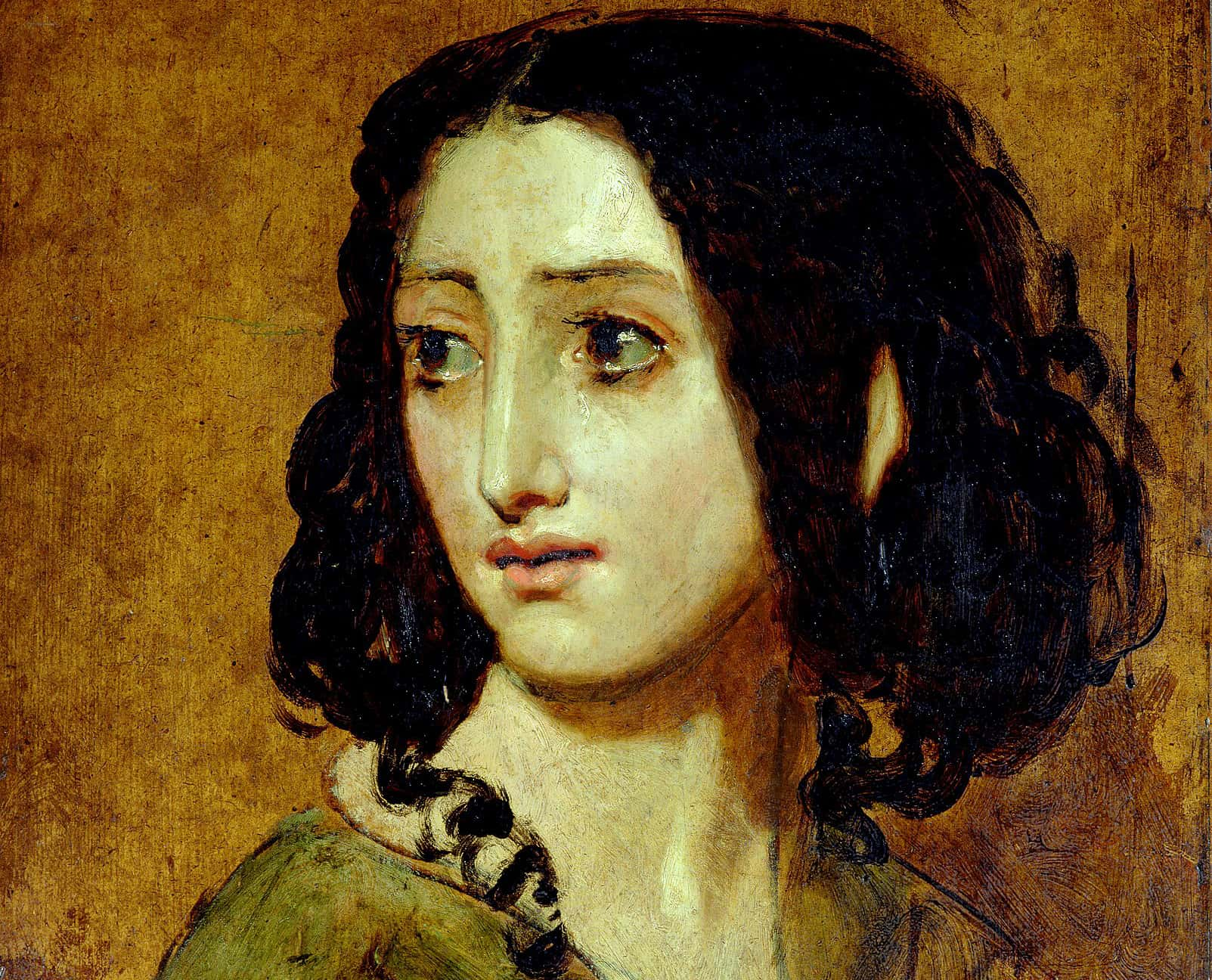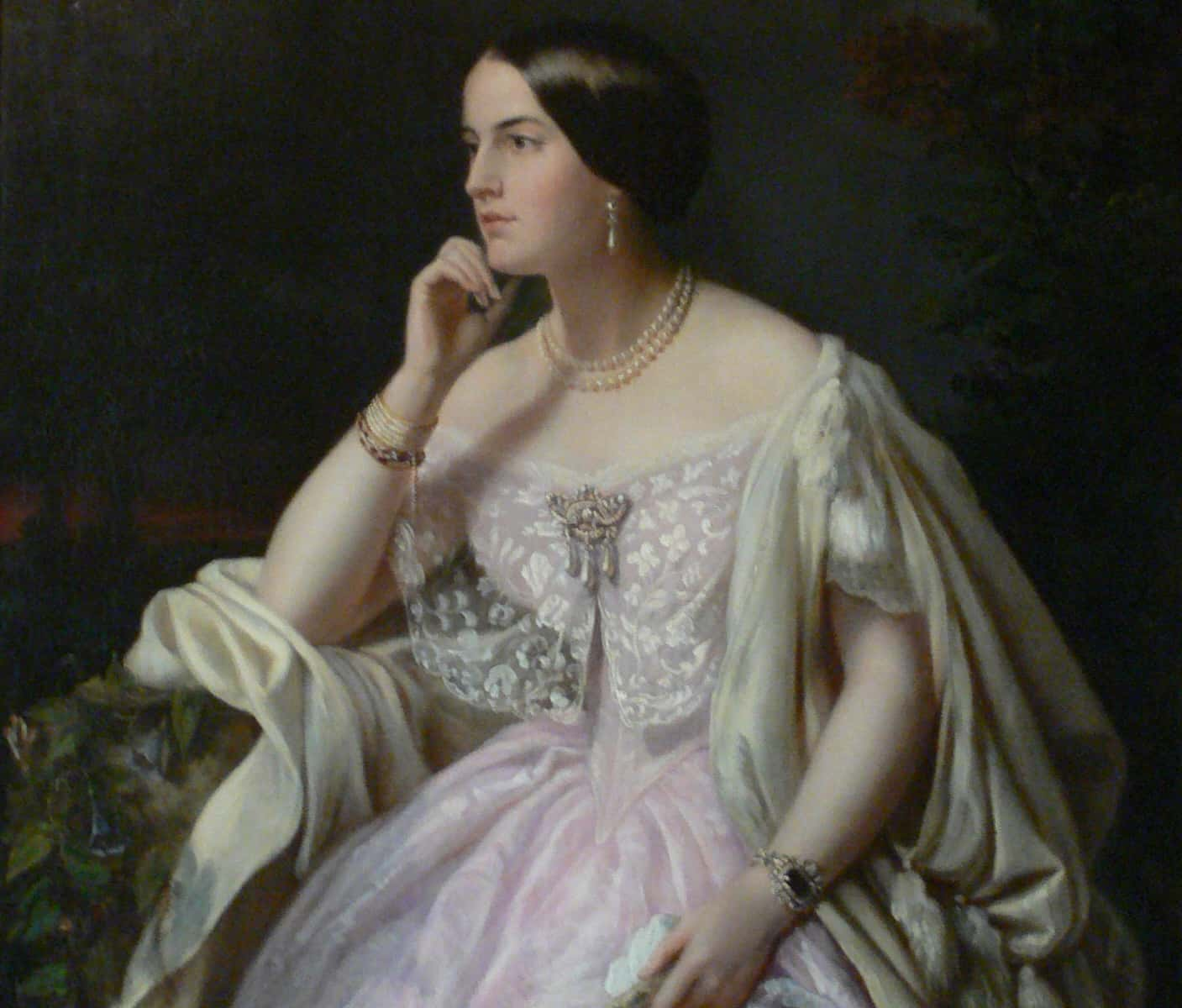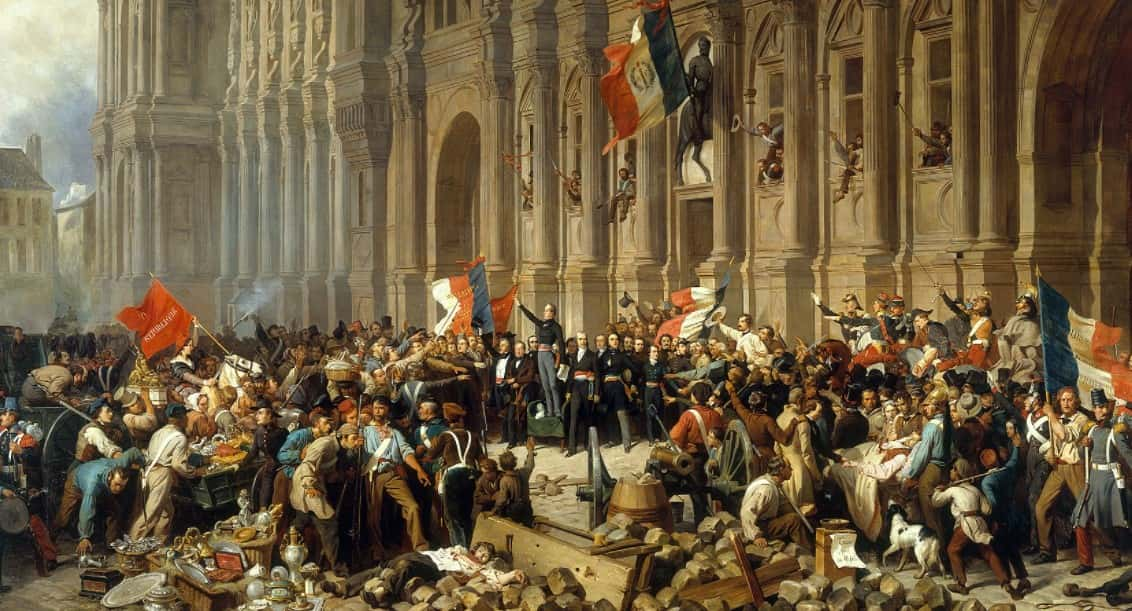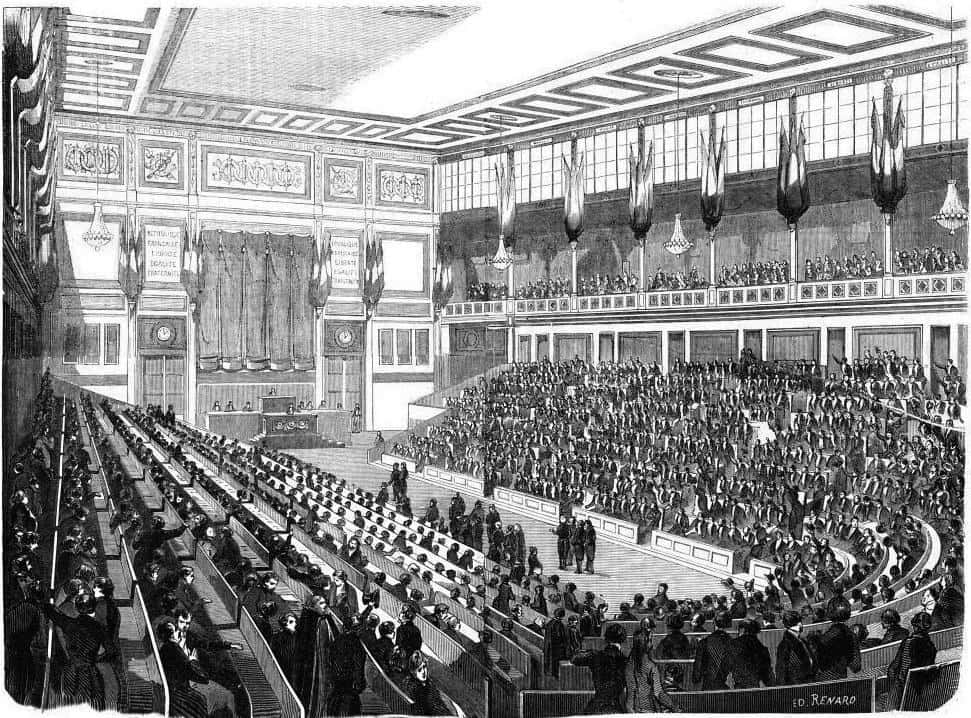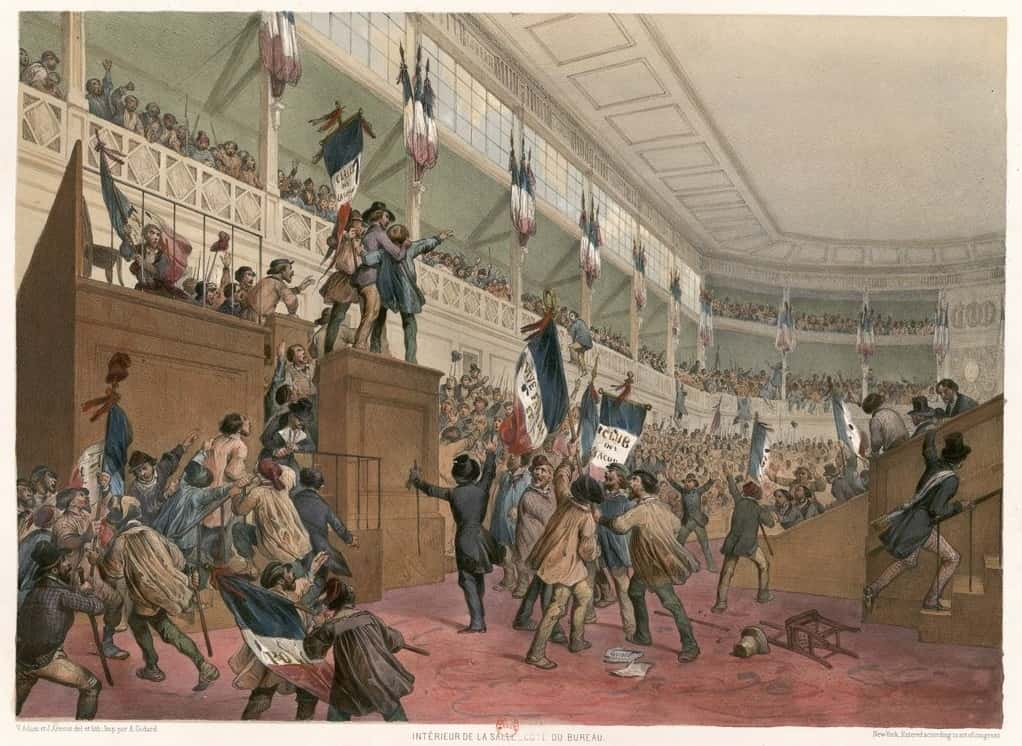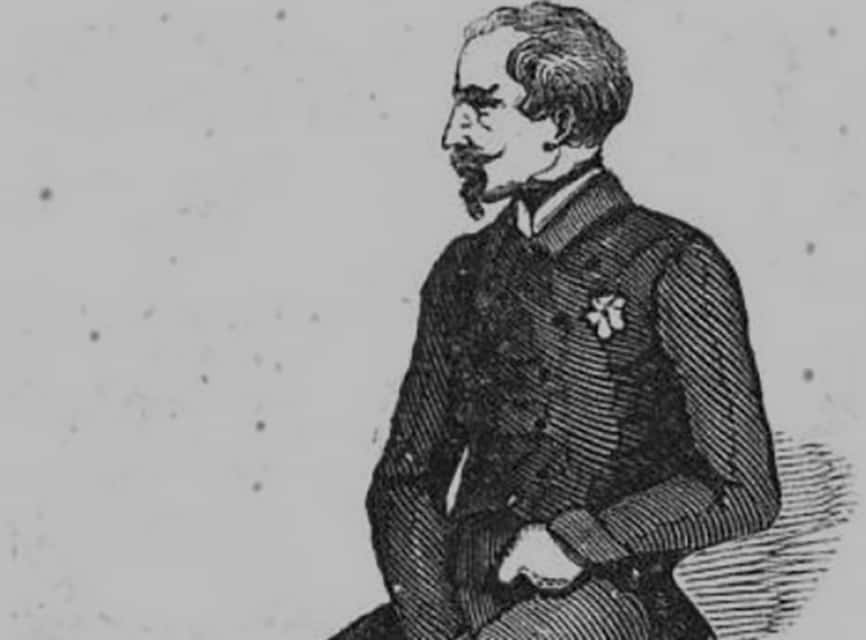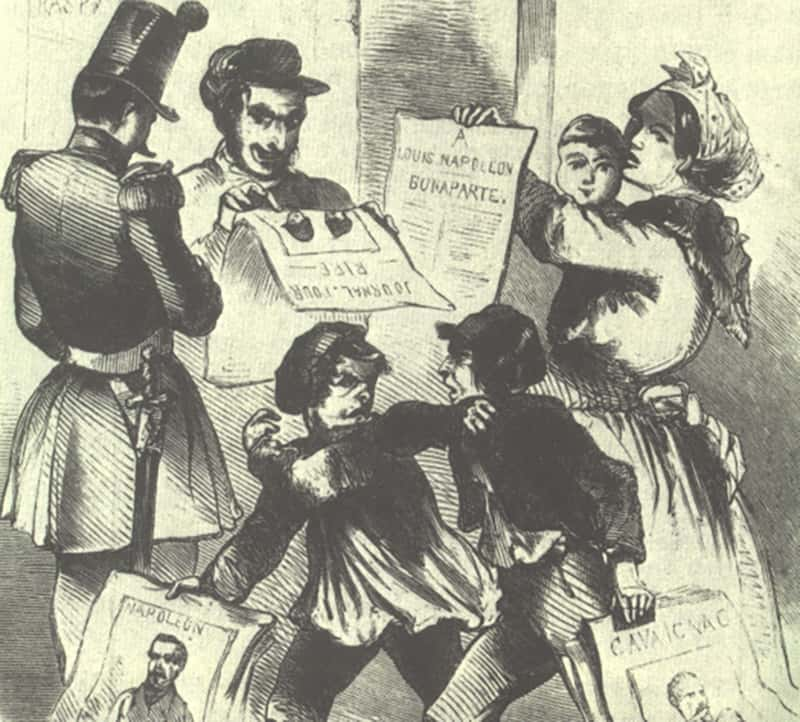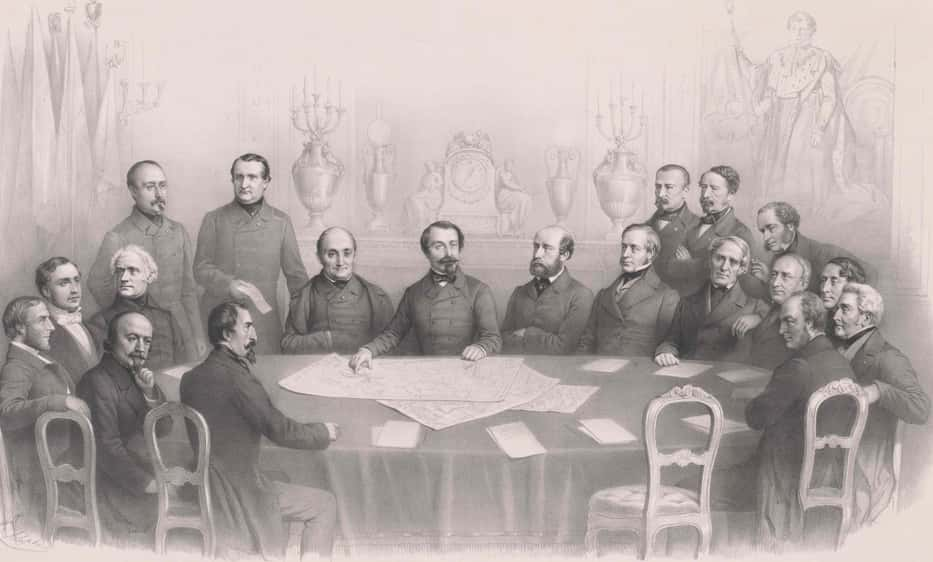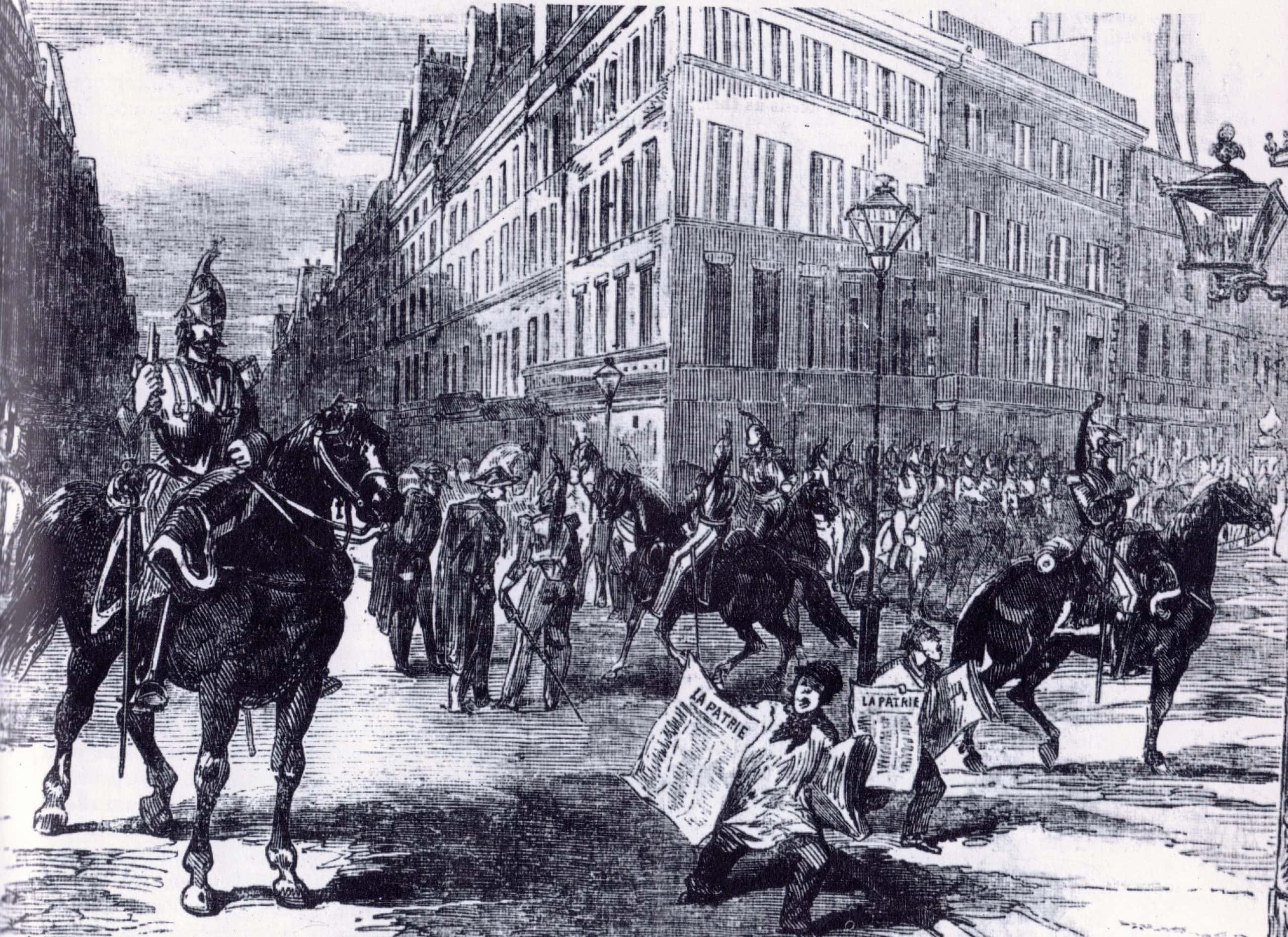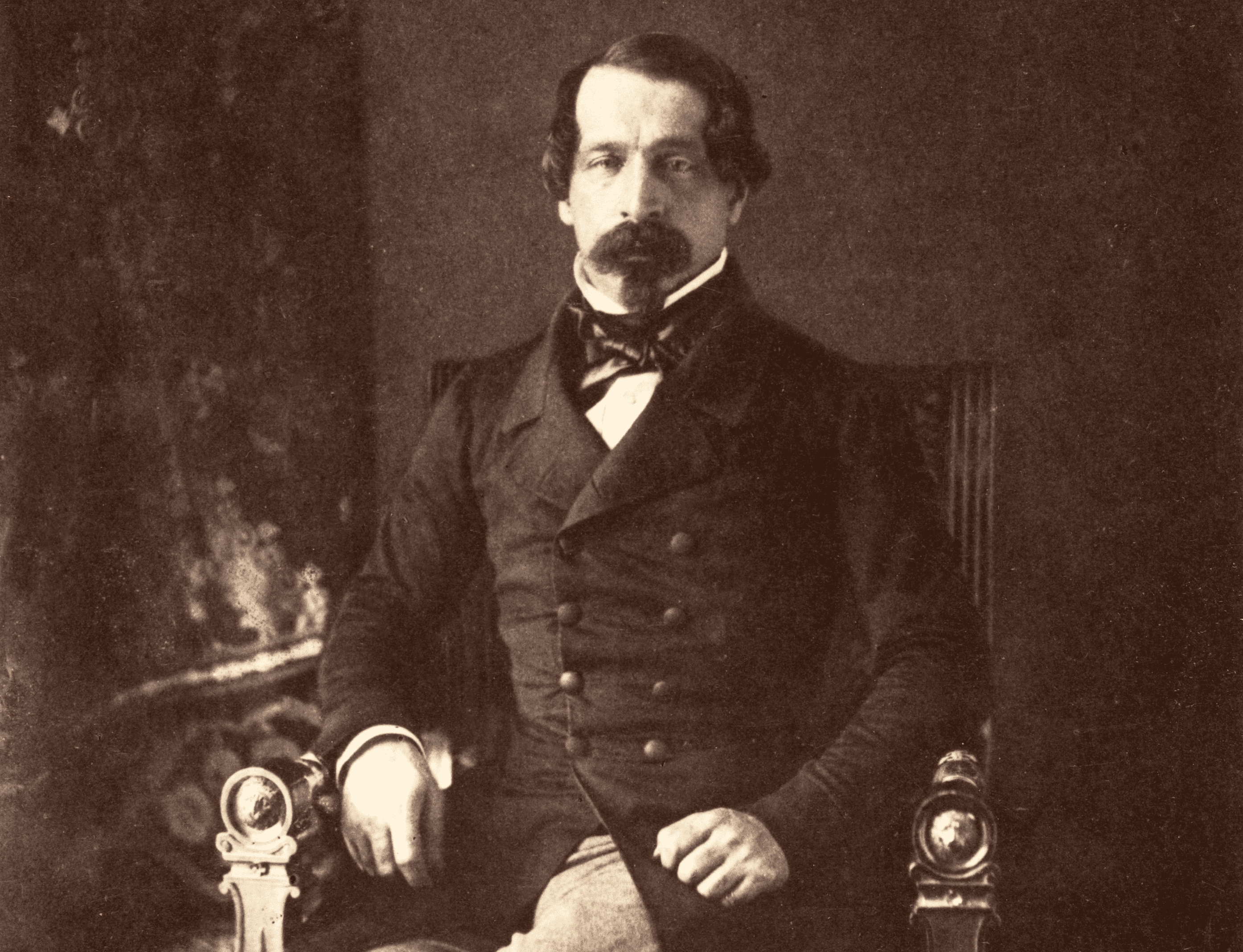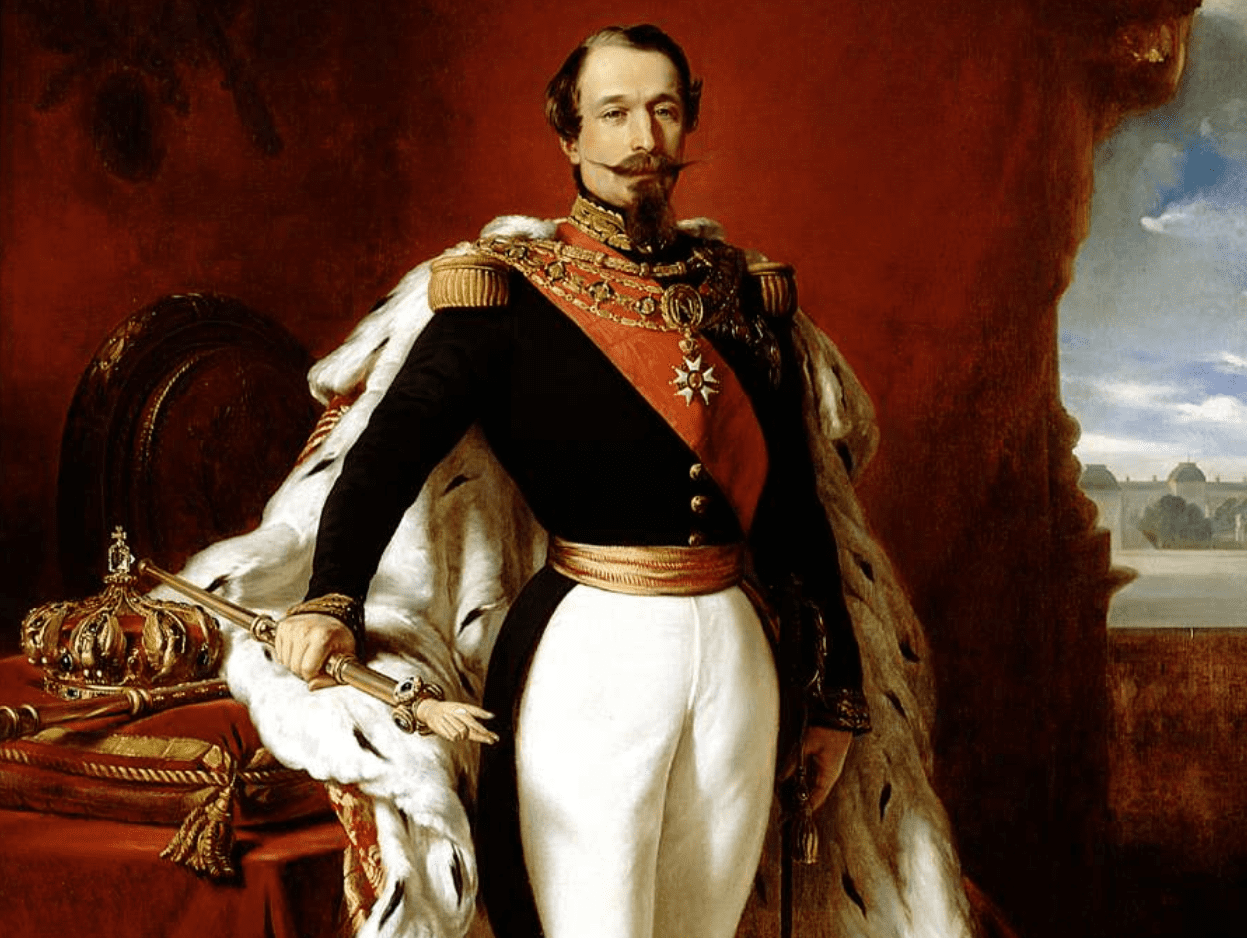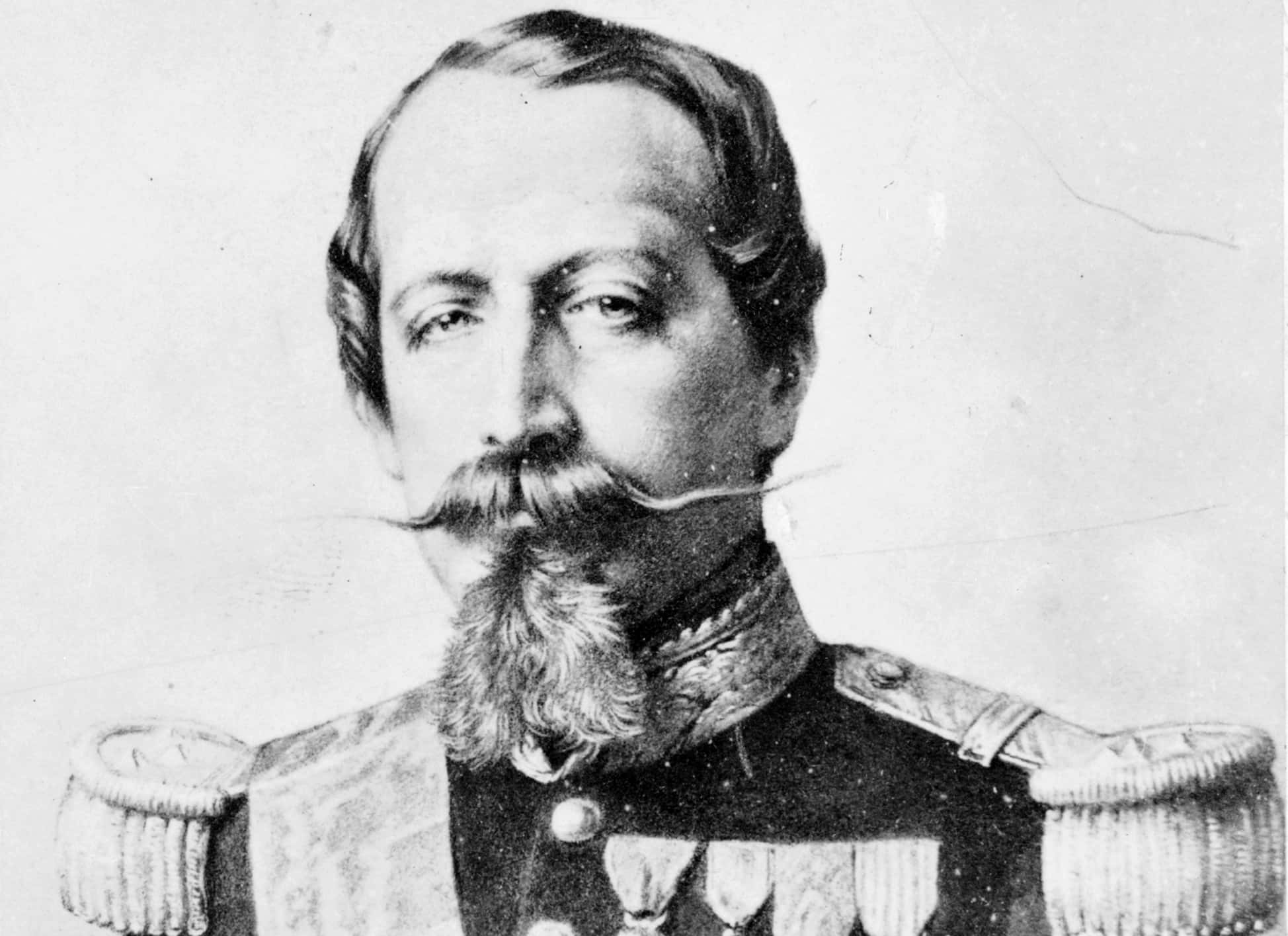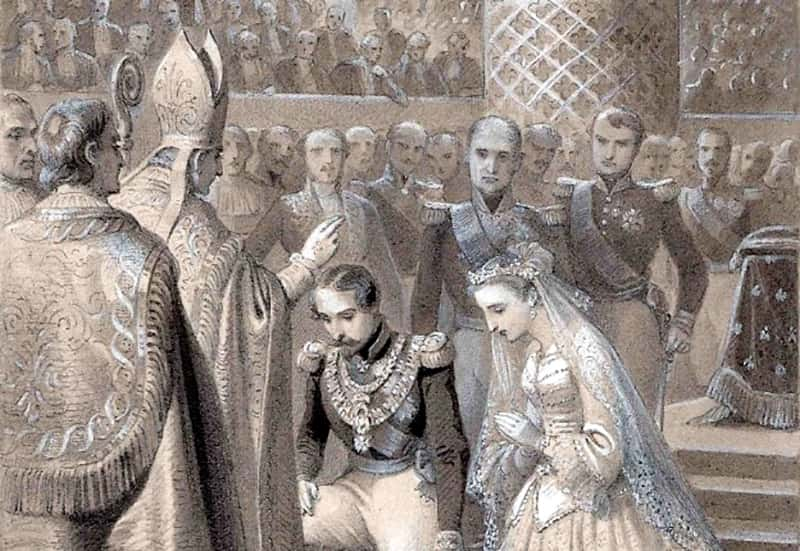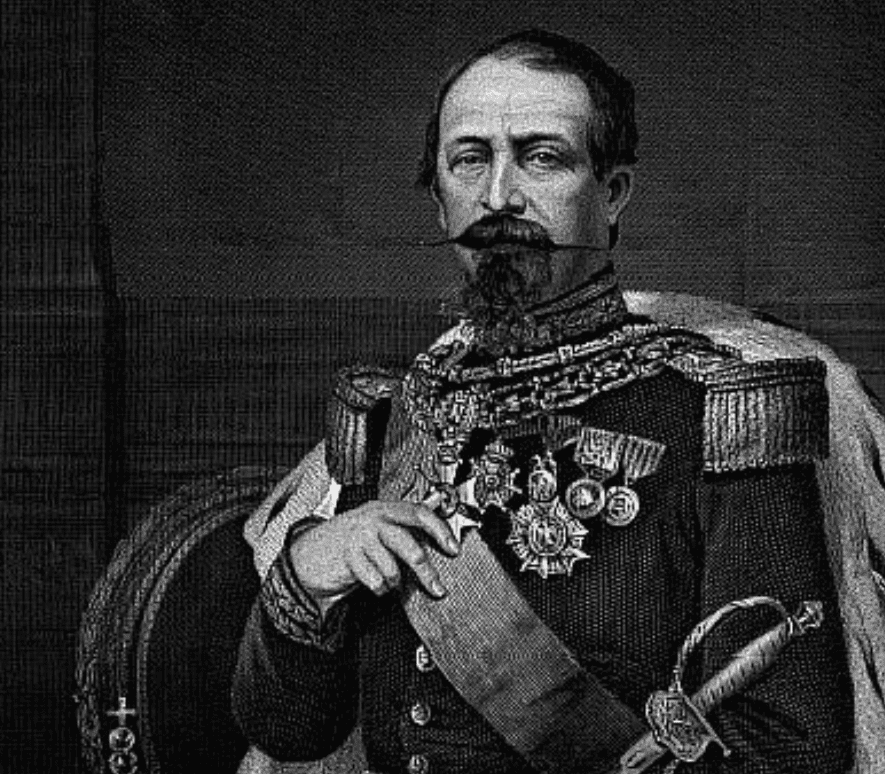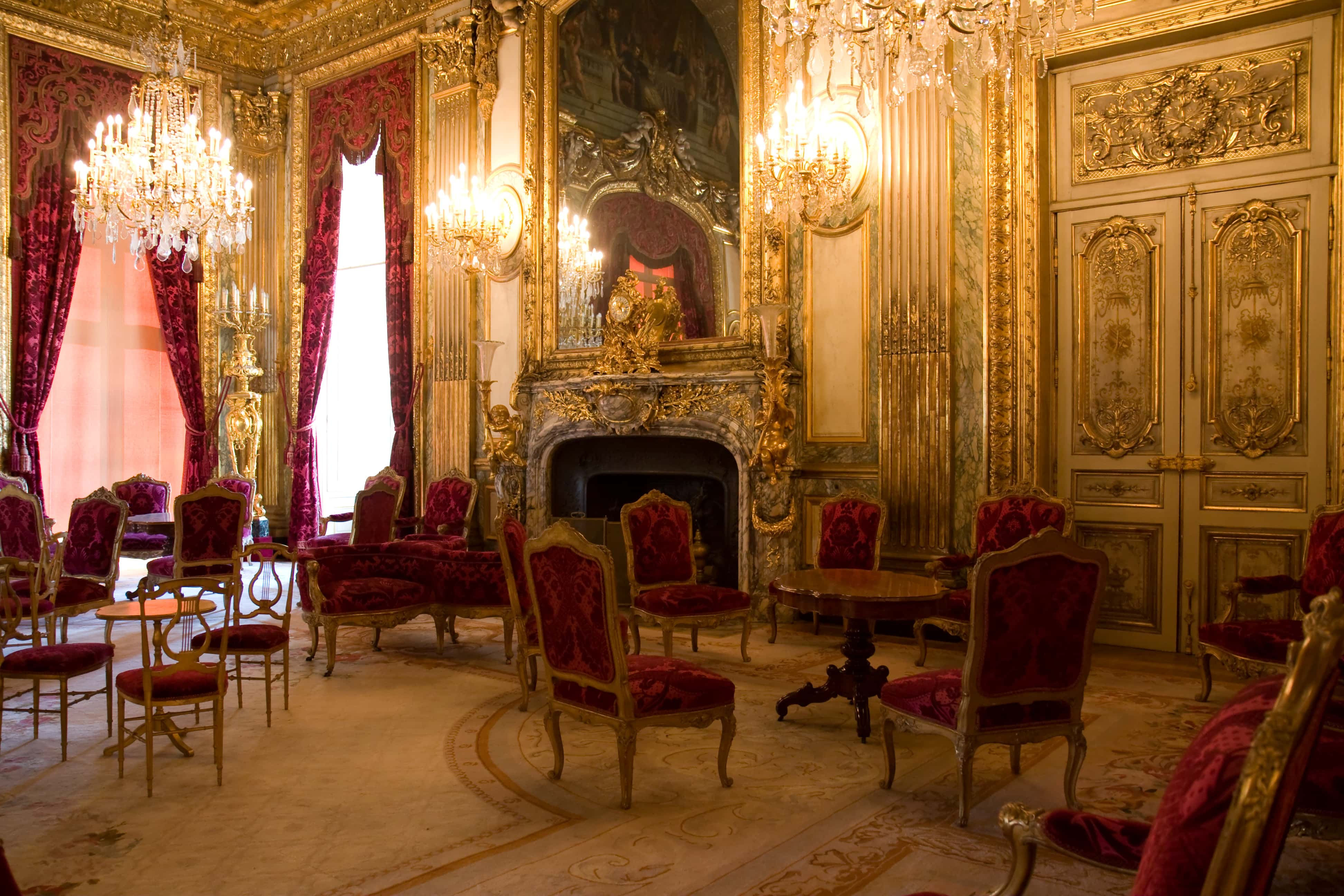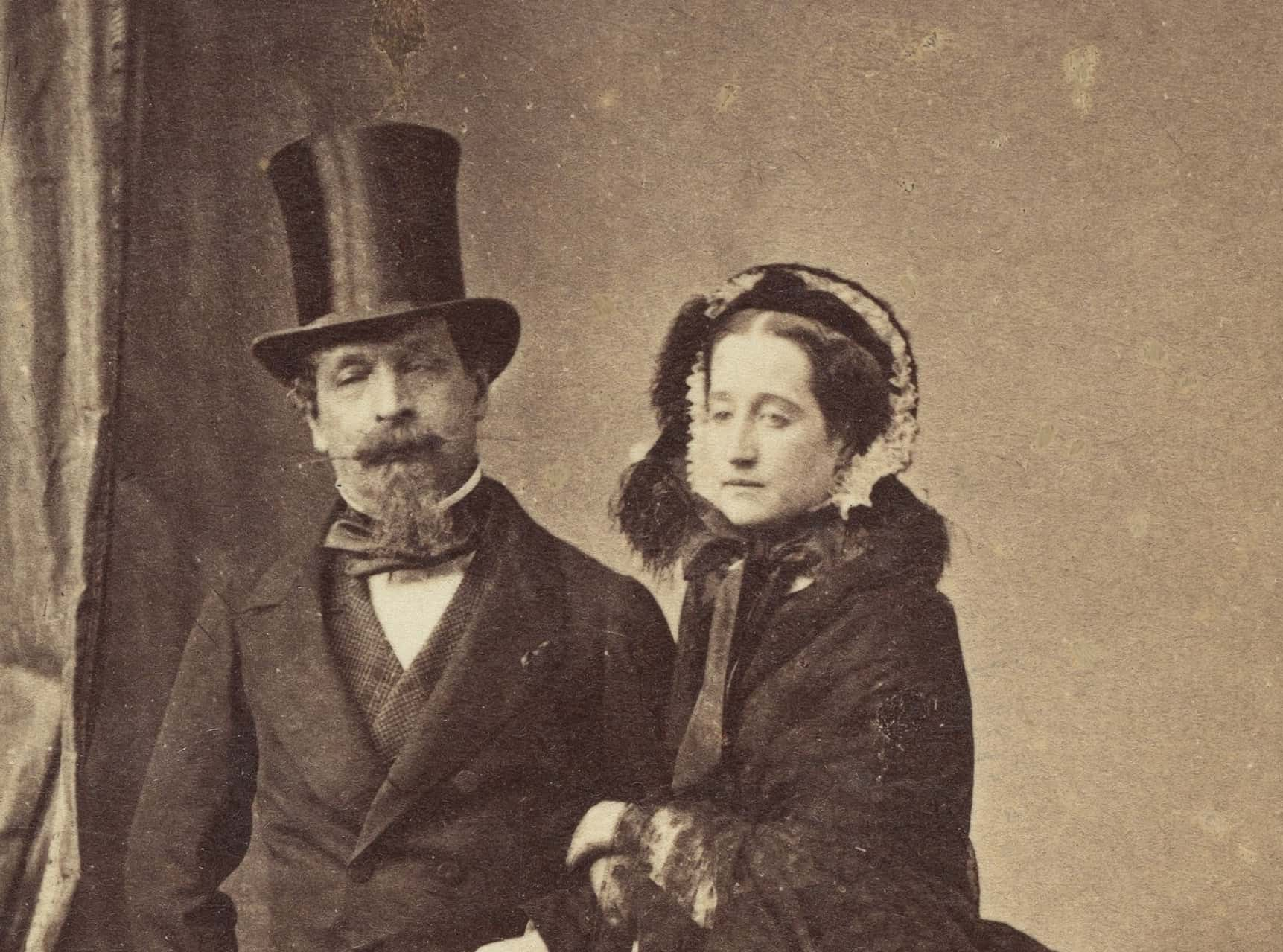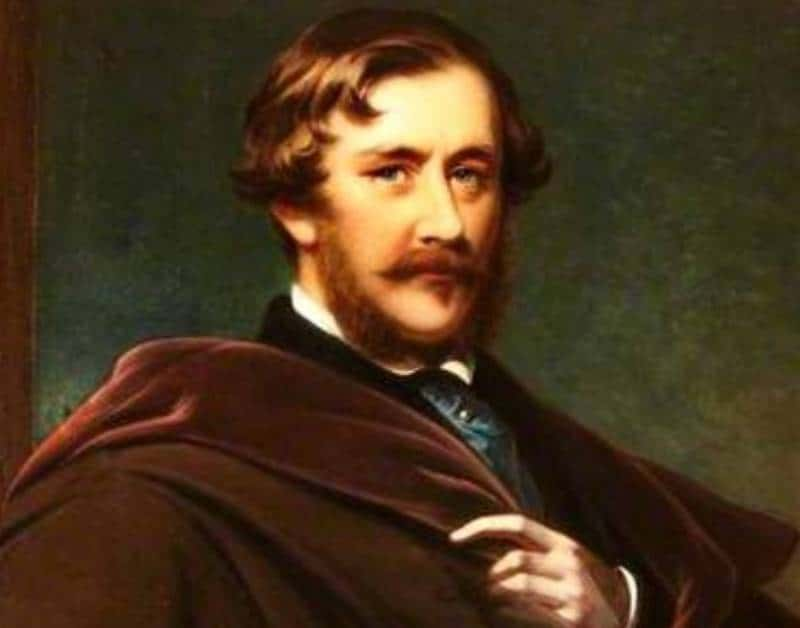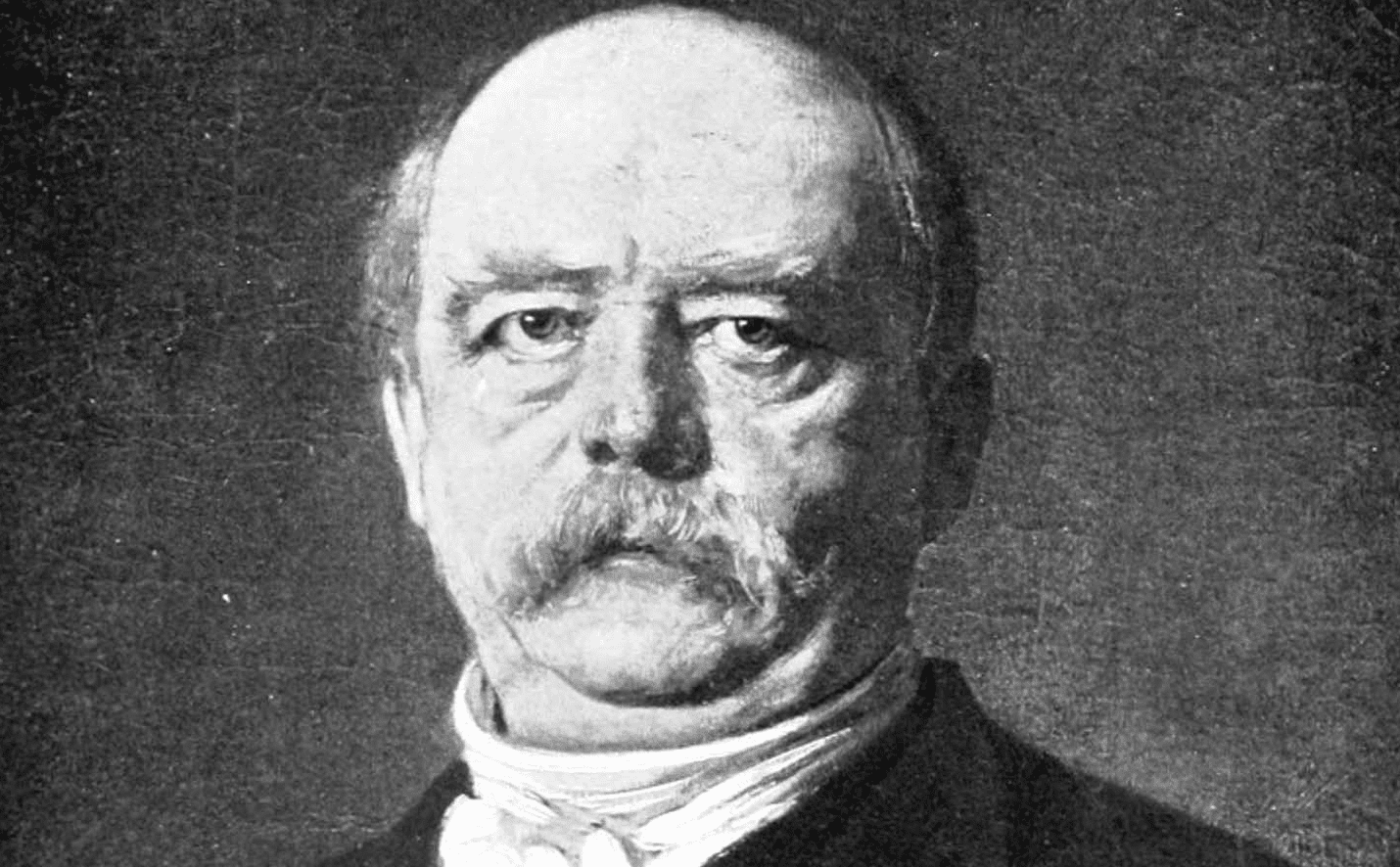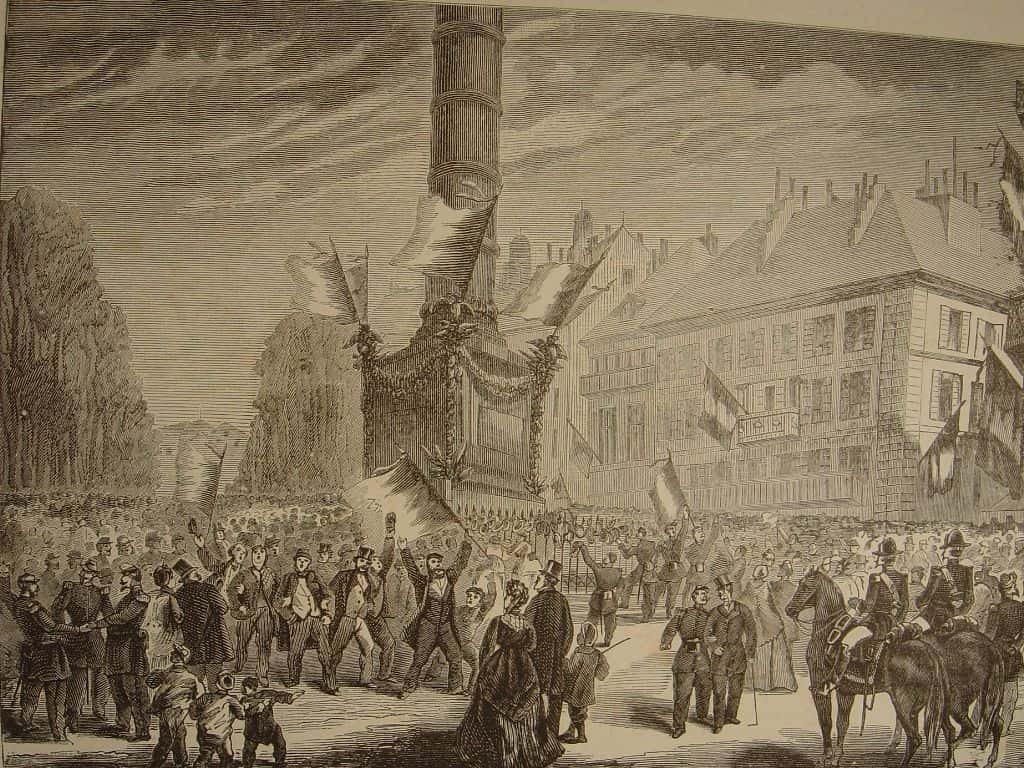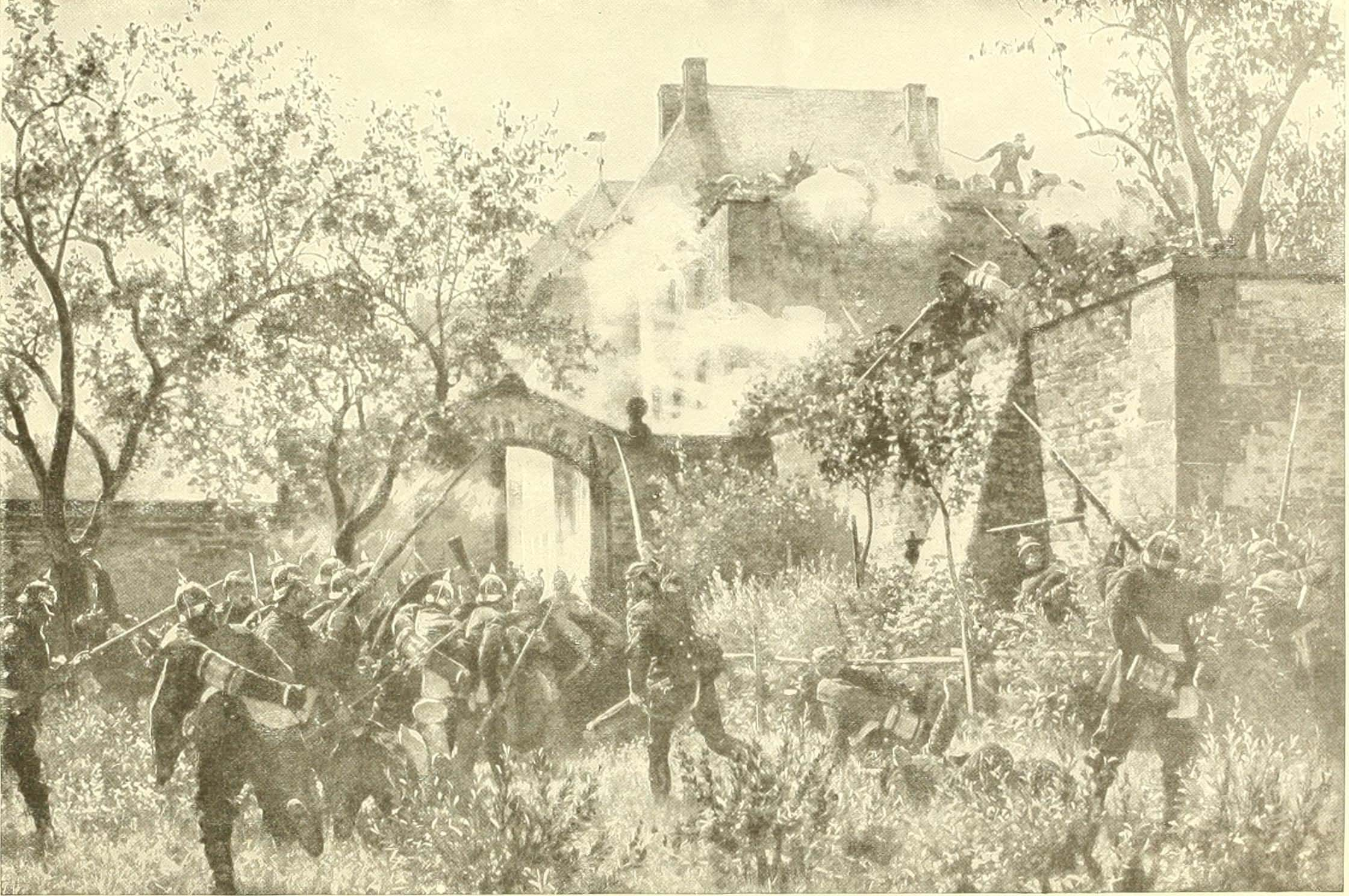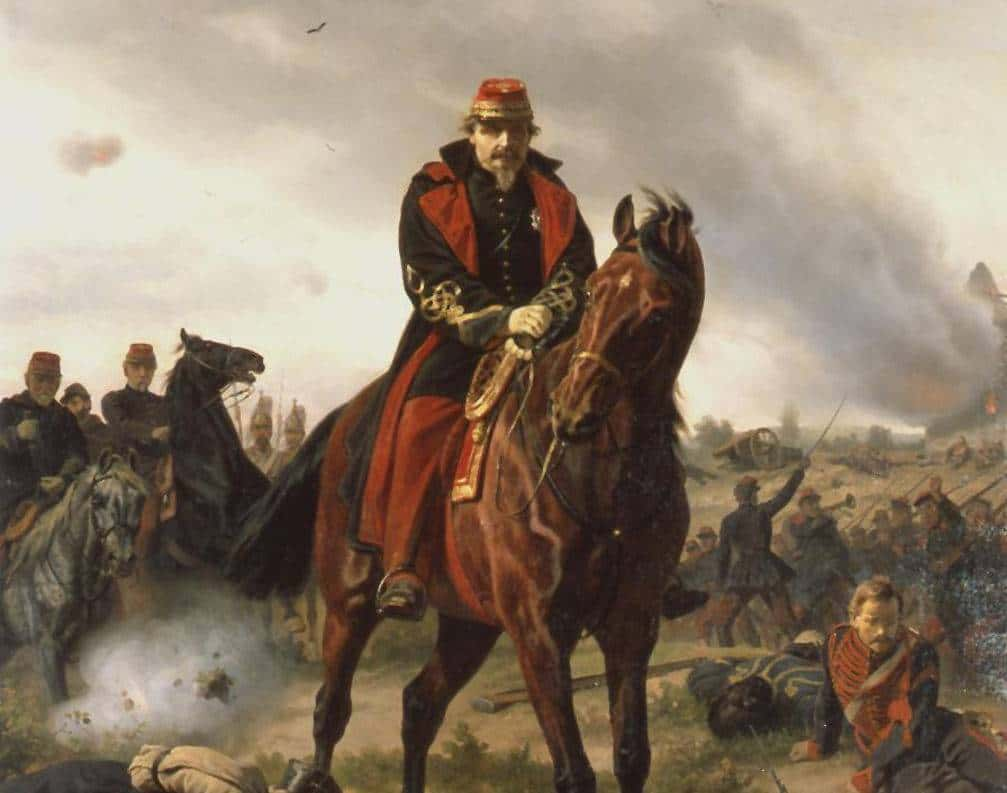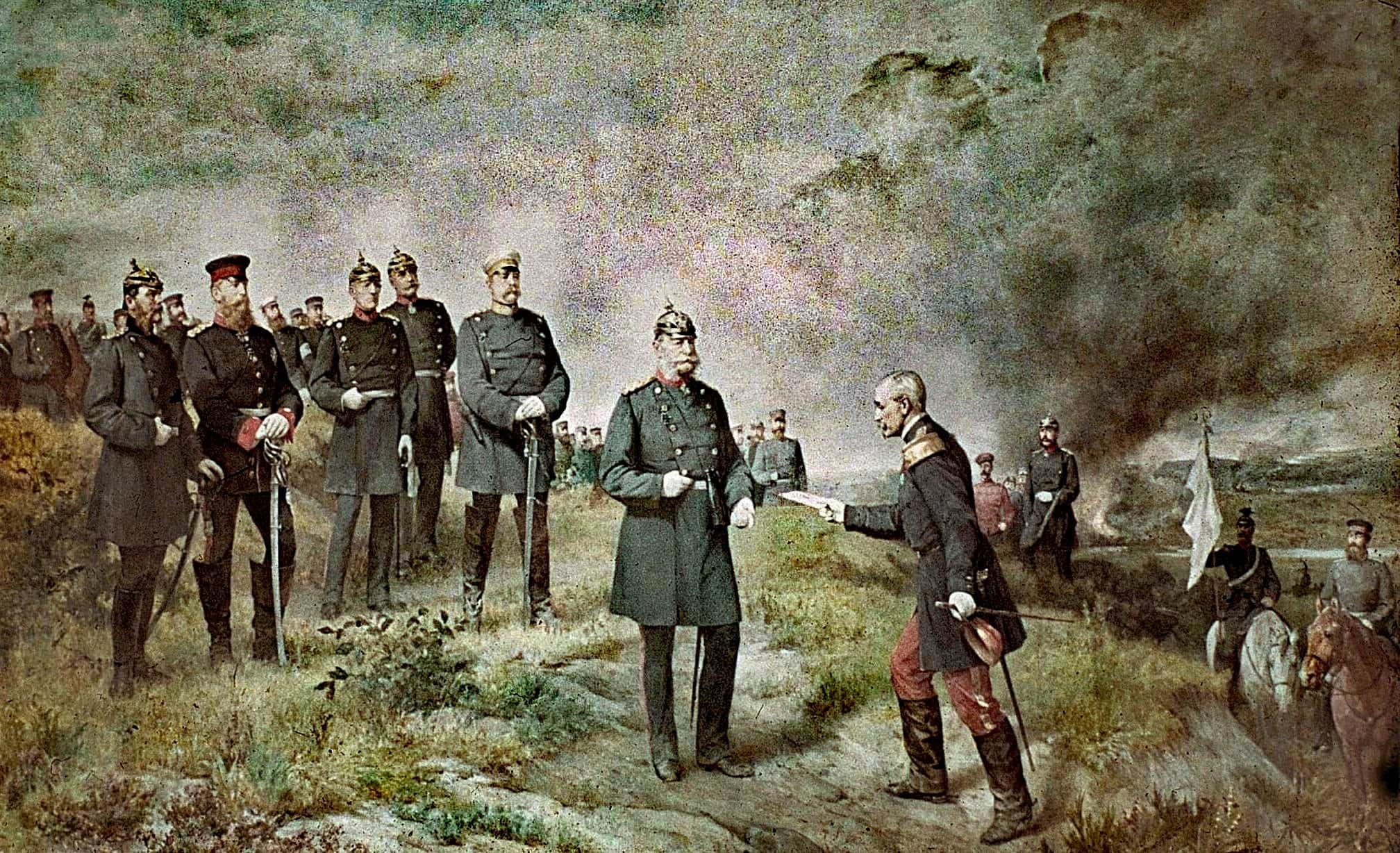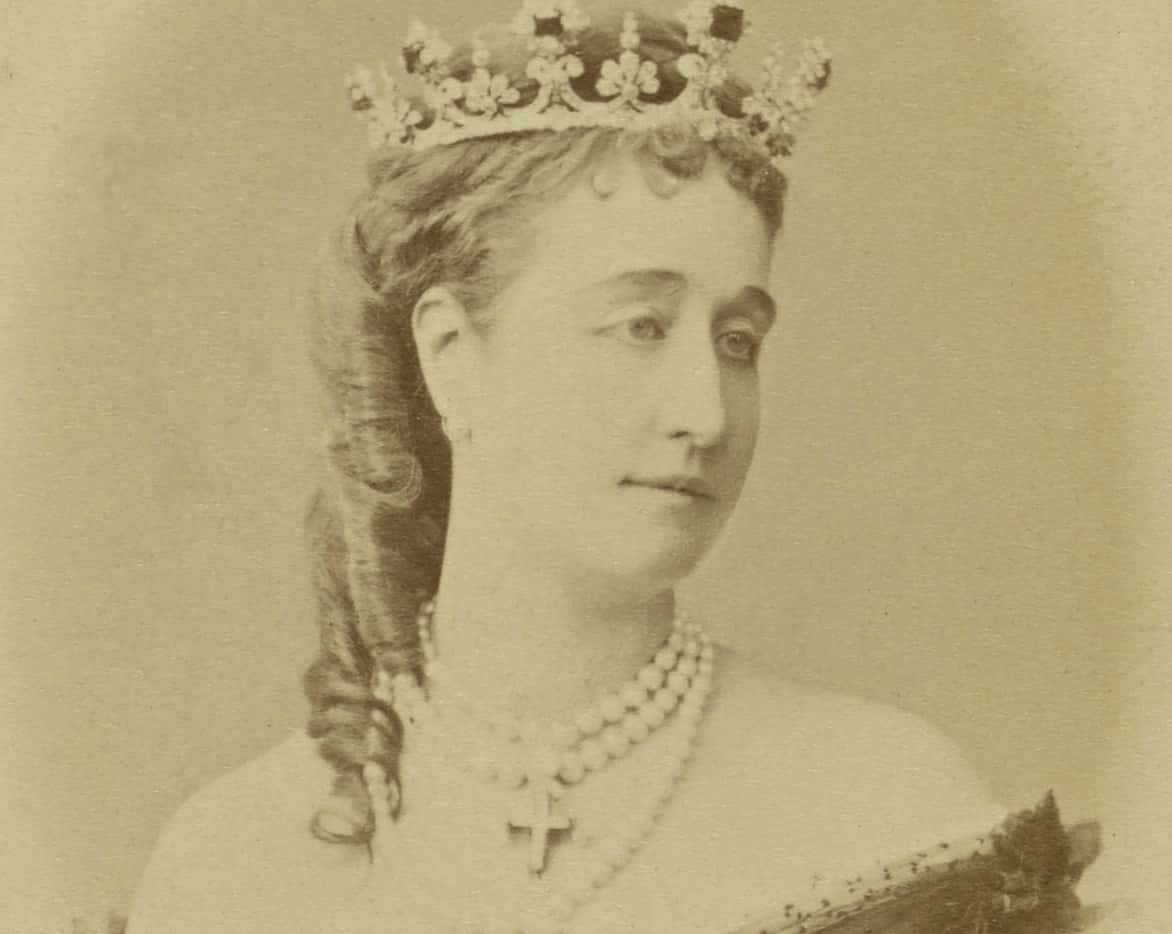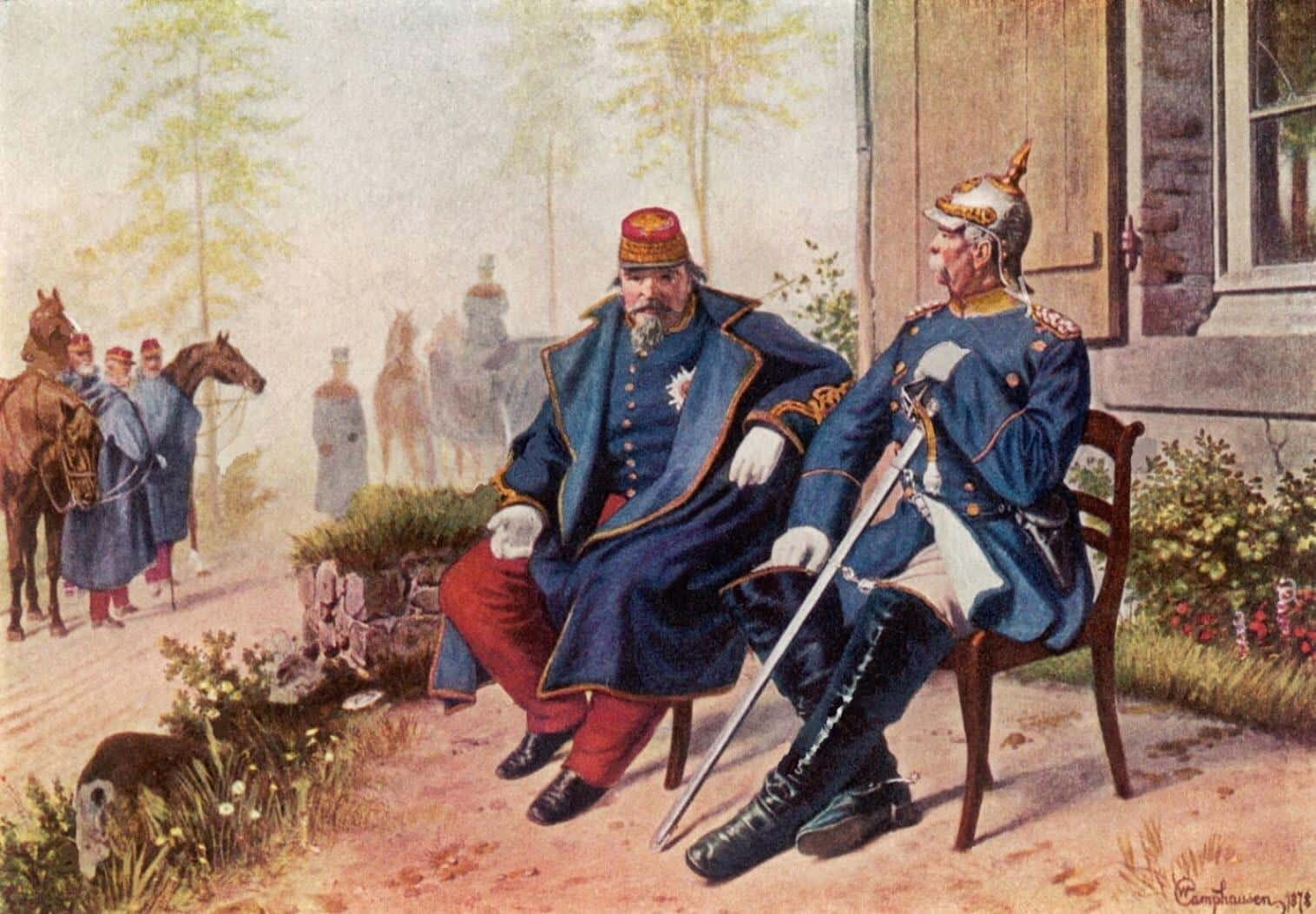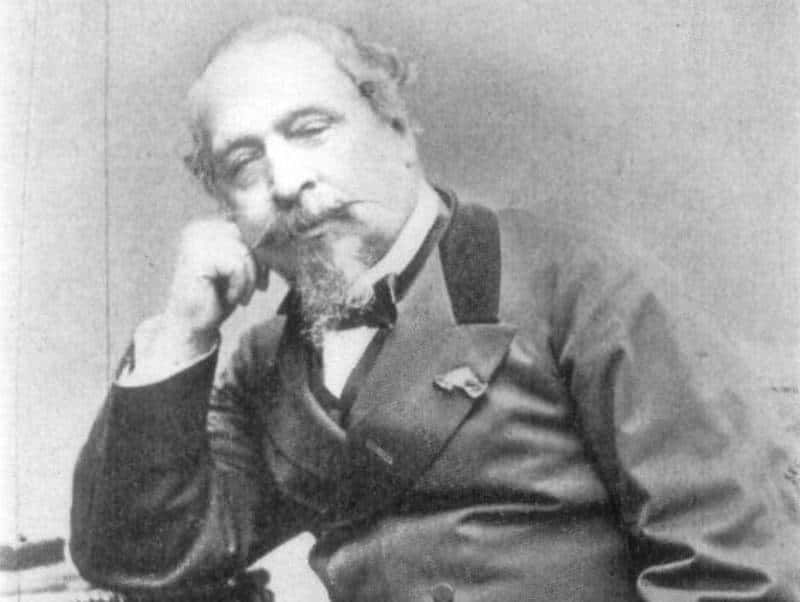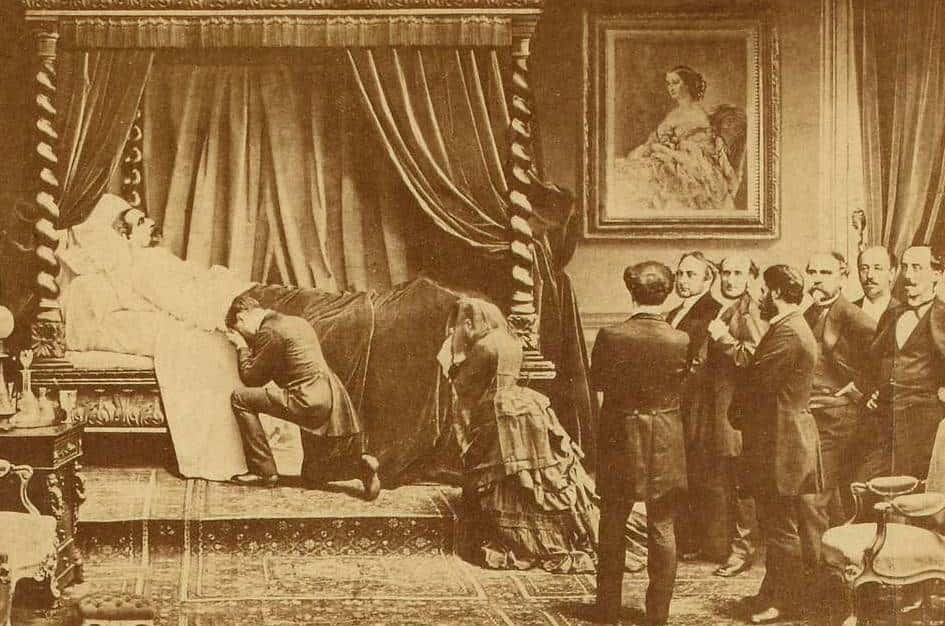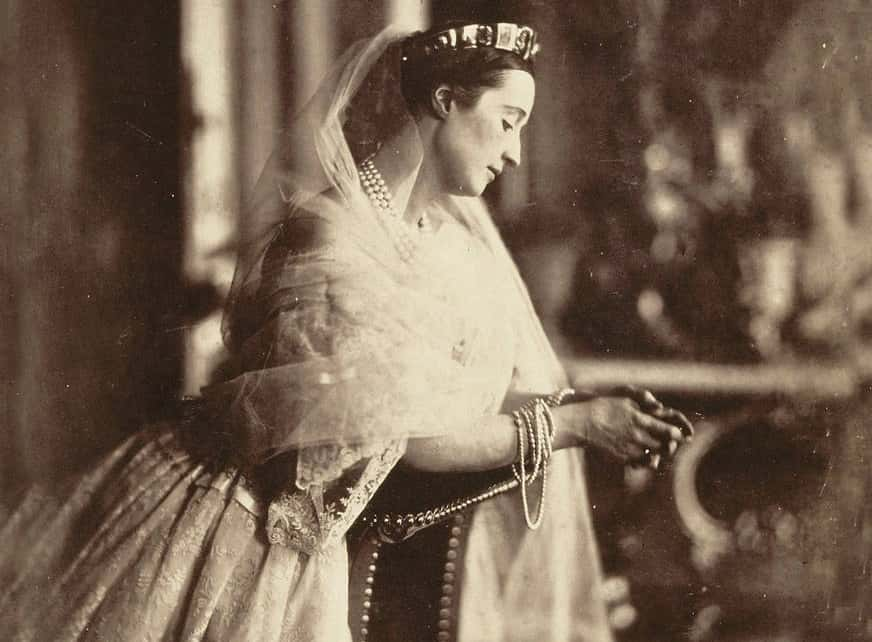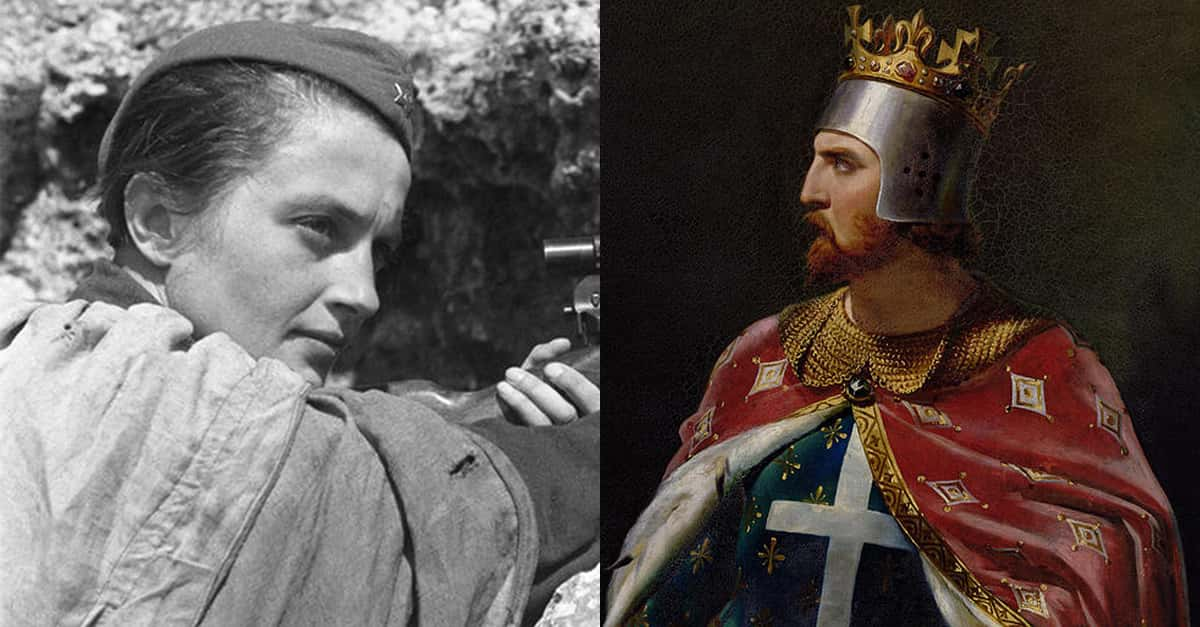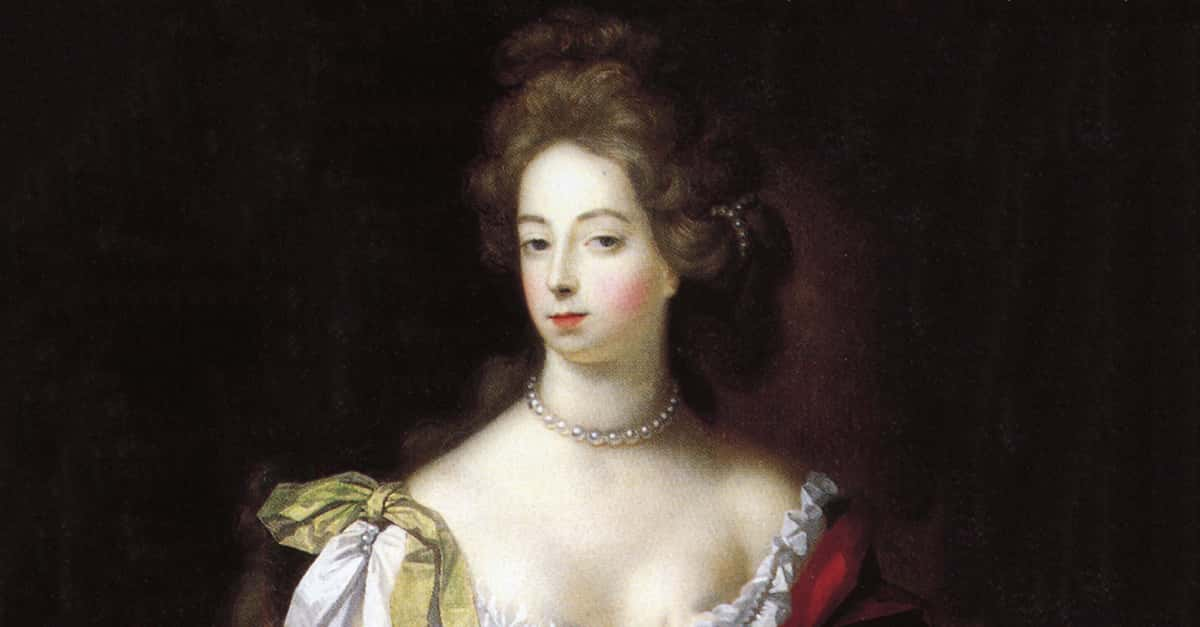The Desperate Emperor
The weight of Napoleon III's name hung over him for his entire life. Convinced he was heir to his uncle Napoleon Bonaparte's empire, Napoleon III plotted and schemed from exile for decades—until his moment finally came.
However, "The New Napoleon" had more flaws than we could count. His countless affairs, unhealthy habits, and questionable judgment all eventually ensured this upstart emperor faced a horrible fate in the end.
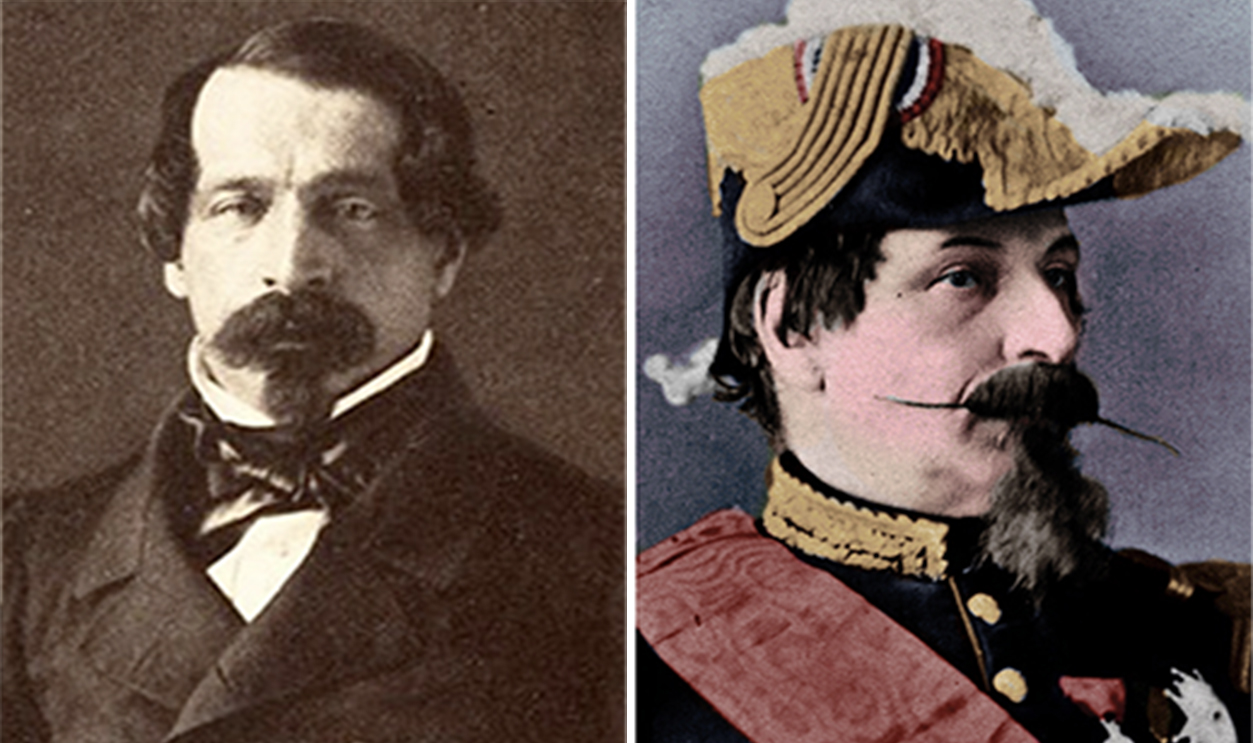
1. His Father Was A King
Napoleon III, AKA Charles-Louis Napoleon Bonaparte, was the subject of controversy before he was even born. His father, Louis Bonaparte, rode his brother's coattails for years, eventually becoming the King of Holland. Ok sure, a nepotistic father doesn't sound that controversial—but the scandal started with his mother.

2. His Parentage Was Messy
Napoleon III's mother, Hortense, was the only daughter of Napoleon's first wife, Josephine, from her first marriage. This is where his family tree gets twisted. For anyone not keeping track, that means Napoleon Bonaparte's brother married his stepdaughter. Even more bizarre, it was all Josephine's idea. Infertile as she was, she knew she could never provide Napoleon with an heir.
The next best thing? Marry her daughter to her brother-in-law, so they can make an heir. If you think that sounds like a terrible idea—well, you'd be right...
3. His Parents Hated Each Other
Napoleon III did not come from a happy home. His parents could barely stand to be in the same room as each other, and they spent most of their lives apart. Turns out, marrying your stepdad's brother doesn't always mean "romance city". But, to cut the unhappy couple some slack: They faced a terrible tragedy that tested their relationship early on.
4. His Parents Lost Their First Son
Josephine's plan for an heir seemed to come to fruition when Louis and Hortense gave birth to a son—but grief soon replaced celebration. Little Napoleon Charles Bonaparte, heir to Napoleon's empire, caught a respiratory infection at just four years old. He soon succumbed to the illness, and his parents were never the same. Not even the birth of our guy Napoleon III the next year could save them now.
Their marriage was only going to get worse from here.
5. He Was Born Early
Born so soon after his elder brother's passing, Napoleon III's parents must have feared for their new son's life. Their fears grew even worse when he was born several weeks premature. However, Napoleon III was, if nothing else, was a fighter. He clung to life and survived. Unfortunately, though, he was not the glue that would bring his parents back together.
The scandalous rumors that swirled around his birth definitely didn't help matters.
6. People Said He Was Illegitimate
It didn't take a genius to see that Louis Bonaparte and his wife Hortense didn't exactly get along. They were rarely even the same city! Enemies of the Bonapartes saw their chance to attack. As soon as Hortense's belly began to grow, critics such as Victor Hugo started spreading rumors that the child was the result of an illicit affair.
Most historians agree that the boy was indeed Louis Bonaparte's son—but I doubt those rumors helped his marriage. And when parents fight, it's usually the kids who suffer the most.
7. His Uncle Was Kind To Him
Napoleon III endured a tense childhood, torn between his fighting parents, but at least his uncle seemed to like him. Napoleon Bonaparte had little time for his nephews, but he did his best. At seven years old, little Napoleon III visited his uncle at the Tuileries Palace. The emperor held him up to the window to wave to the men marching below.
It was a warm moment—unfortunately, though Napoleon III couldn't have possibly known it, there were storm clouds on the horizon.
8. He Never Saw Him Again
The last time Napoleon III ever saw his uncle was at a family gathering. He may have wondered why the adults all seemed so tense: Napoleon was getting ready to march off to the Battle of Waterloo. After his catastrophic defeat, the new French regime forced all of the Bonapartes into exile. Our boy Napoleon III went from the lap of luxury in Paris to life on the run.
It would be decades before he ever had a place he could call home again. By then, he'd be a man—complete with every flaw a man can possess.
9. He Discovered The Ladies
The years after the Battle of Waterloo were chaotic for young Napoleon III. He jumped from town to town, nation to nation, never really laying down roots. When he was 15, however, he moved to Rome, and there, his true "education" began. Sure, he learned Italian and explored the ancient sites of the city, but that's not what I'm talking about.
Napoleon III discovered women in Rome. They would prove to be his greatest vice—but he got up to more sinister activities as well.
10. He Joined A Secret Society
Napoleon III focused most of his energies on learning the art of seduction while in Rome, but that wasn't all he got up to. Like any good exiled royal, he got involved with a secret society too. He and his older brother became involved with the Carbonari, a revolutionary group that resisted the Austrian domination of Northern Italy. I guess Napoleon figured, if these guys could overthrow Austria, maybe they could help him out in France too.
It was a good plan—but he knew he was taking a risk. Would it pay off?
11. It Didn't Work Out
It would not. The Austrian authorities cut Napoleon III's time in Italy short when they went after the Carbonari. Authorities began rounding up anyone with ties to the secret society—and that meant Napoleon and his brother were in danger. They had to flee Italy under cover of darkness, on the run once again. However, they had barely left the country when Napoleon III came to a devastating realization.
Something was seriously wrong with his brother.
12. He Lost The Person Closest To Him
Though his parents had never been close and he'd lost his uncle early, at least Napoleon III had had his older brother by his side all this time. Well, that was at an end. During the flight, Napoleon III's brother came down with measles—and in those days, it was often fatal. Napoleon III held his brother in his arms as he gave his last breath.
It was the first great loss of Napoleon III's life—though there were plenty more to come. Even worse, he didn't even have time to grieve. He was still on the run.
13. He Went Home
Napoleon III met up with his mother, but they were running out of options. The exiled Bonapartes had no home anymore—so the pair went to the last place anyone would expect: Paris. The old regime of King Charles X had just fallen apart, and the new king, Louis Philippe, seemed far more liberal. Napoleon III arrived in Paris in 1831, under the false name of Hamilton.
After all these years, he was back in his homeland—but his struggles were far from over.
14. They Begged To Stay
Napoleon III's mother knew they couldn't keep their identity a secret forever. She wrote a letter to the king himself, asking for permission to stay in France. Napoleon III even offered to join the French forces as an ordinary soldier, to show his loyalty. Hortense must have been persuasive, because the new king agreed to meet with them.
That meeting, unfortunately, didn't quite go as planned.
15. He Was Too Proud
Napoleon III didn't actually make it to that meeting with the king. He came down with a fever and had to stay home. Maybe that was for the best, though. The king was surprisingly understanding, and he allowed Napoleon and his mother to stay in Paris, so long as they kept their identity a secret. He also said it was fine for Napoleon to join the French Army—so long as he changed his name.
Above all else, Napoleon III was a deeply proud man. He indignantly refused the king's offer. At least they received permission to stay in Paris—but as with everything in Napoleon III's life, no good thing could last long.
16. They Had To Run Yet Again
Though Napoleon III kept his identity a secret, it was only a matter of time before word got out that the Bonapartes were in Paris. Within a month, most of the city knew where Napoleon and his mother were staying. On May 5, the 10th anniversary of Napoleon Bonaparte's end, mourners packed the streets in front of their hotel.
It was a nice gesture, and one that filled Napoleon III with pride and hope—but it was also the last thing they needed. The new king couldn't have a Bonaparte in Paris, rallying people against him. That same day, Louis Philippe ordered Napoleon III to leave Paris. He was on the run yet again.
17. He Believed In Himself
Napoleon III left Paris a changed man. The weight of his name had always hung heavy over him, but his time in the city gave him a new perspective. He saw how much people had loved his uncle, and how they rallied to him. He became convinced that he could march on Paris and that the people would rise up to support him.
Napoleon III began planning a coup. But, in case you couldn't tell already, nothing ever came easy for him.
18. His First Coup Was Disastrous
From Paris, Napoleon III went to Strasbourg. There, he had an ally in the local army colonel. Together, they seized the city, and began their plans to march on Paris. Unfortunately, they let the garrison commander escape. That was a fatal mistake. He rallied a force from the area and returned to surround the city. All of the mutineers surrendered immediately, and Napoleon III had to flee to Switzerland.
Ok, so that didn't work out so well—but Napoleon III was nothing if not persistent.
19. He Nearly Started A War
Napoleon III didn't have many friends left, but thankfully, the few he did have were in Switzerland. When the French king demanded the Swiss extradite him, they refused. He was a Swiss citizen and had served in the Swiss Armed Forces. They weren't going to betray their own like that. Well, obviously, that wasn't what the French king wanted to hear. He promptly sent a force to the Swiss border.
The situation was getting tense, and the only man who could do anything about it was Napoleon III himself.
20. He Travelled The World
Napoleon III thanked the Swiss authorities for their loyalty, but he wasn't going to let them start a war over him. He left Switzerland voluntarily and set out to see the world. He went to London and then to Brazil, before finally ending up in New York City. There, he ingratiated himself with the American cultural elite. The name Napoleon still opened plenty of doors.
After a time in the Big Apple, he set off to explore America, still a new and exciting country at the time. However, he didn't get to see much. His adventure had barely started when he received a devastating letter.
21. He Got To Say Goodbye
Napoleon III had left his mother behind in Switzerland; the French wanted him, not her. While he was gone, her health took a nosedive, and she sent him a letter saying she didn't have much time left. When Napoleon received the news, he was half a world away. He dropped everything and hurried back to Europe, praying he would make it in time to say goodbye.
He did. As with his brother before her, Napoleon III was with his mother when she passed. She was the only close family he had left—but her loss only inspired Napoleon to make her proud. And that's just what he did.
22. He Tried Again
With his sojourn over, Napoleon set his sights back on France. He moved to London, where he continued to schmooze with the elites and dream of the day he'd march on Paris. It wasn't long before he got the courage to move once again. He bought arms and uniforms, printed proclamations, and gathered about 60 men to march with him. It wasn't much, but remember: Napoleon figured he didn't need much of a force. He'd just show up in France and the people would rejoice at a returning Bonaparte.
Yeah, that isn't exactly what happened...The embarrassment in Strasbourg was nothing compared to this.
23. He Failed...Again
Napoleon III's grand invasion of France...didn't even make it off the beach. They arrived on French shores, where customs agents immediately stopped them. They had hoped the local garrison would rally to their cause, but that didn't happen. The garrison surrounded Napoleon III's men on the beach. After a tense standoff in which one of Napoleon's men perished, the locals apprehended all of the mutineers.
Last time Napoleon had failed, he'd at least gotten out before things went down. This time, he wasn't so lucky.
24. The Papers Eviscerated Him
Although Napoleon III thought very highly of himself and his name, not everyone agreed with him. The press made him a laughingstock after his failed invasion. One paper wrote, "This surpasses comedy. One doesn't kill crazy people, one just locks them up". Not exactly the triumphant return he was hoping for. But the press reaction was still better than the government's reaction.
They sentenced Napoleon to life imprisonment.
25. He Had A Lady
Don't go feeling too bad for Napoleon III. Sure, he was a prisoner, but it's not like the French king locked him up in a dank cell. He had guards, but he still had a surprising amount of freedom. He even had time to shack up with a local woman named Éléonore Vergeot. He fathered two children with her while biding his time and planning his next move.
The thing is, though: Forever and always, Napoleon III just kept getting into trouble when women were involved.
26. He Slept Around. A Lot.
Everyone knew Napoleon III to be a notorious womanizer. In his defense, he once cheekily said, "It is usually the man who attacks. As for me, I defend myself, and I often capitulate". His most infamous conquests included Elisa Rachel Felix, "the most famous actress in Europe," and the Countess of Castiglione, "the first supermodel". And that barely scratches the surface.
So, how did Napoleon manage to have all these affairs without it messing up his life? Simple: He didn't.
27. He Just Couldn't Stop
Napoleon III's womanizing wasn't just infamous for the scandals it created. Napoleon was so obsessed with chasing tail that it had a serious effect on his career and relationships. When everything finally went up in flames in the end, no one was too surprised that the philandering playboy couldn't keep it together. But we're getting ahead of ourselves.
First, Napoleon needed to accomplish something—and even though he was a captive, he wasn't out of the game just yet. Far from it.
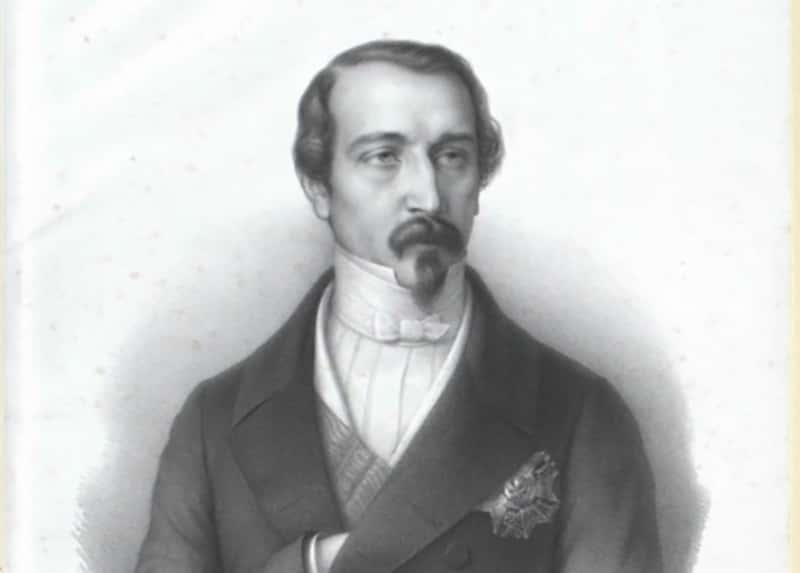 Picryl
Picryl
28. He Waited For His Chance
Napoleon III kept himself plenty busy in captivity, but that doesn't mean he was satisfied. The press could ridicule him all they wanted, but Napoleon knew, deep down, that the people of France adored him and were just waiting for his return. In 1840, when his uncle Napoleon Bonaparte's body returned to Paris to much celebration and fanfare, Napoleon III's confidence only grew.
He had bided his time for years, but the time had come. He had to escape.
29. He Walked Out
On May 25, 1846, Napoleon III simply walked out of prison. Why did no one stop him? He had come up with a devious plan. He wore a laborer's clothes and was hauling a load of lumber at the time. His disguise worked like a charm, and he walked right up to his getaway carriage, which took him straight to the English Channel. From there, he hopped on a boat to England, where he started his plans for an insurrection anew.
But he'd barely even gotten started when another piece of tragic news landed at his doorstep.
30. He Was The Last Hope
Napoleon III had never really been very close with his father, but the man had still sired him. So it must have still been a hit, then, when he learned that his father had suddenly passed. Through his grief, though, he saw an opportunity. With his father gone, Napoleon III was now the clear, unopposed heir to the Bonaparte dynasty.
Their hopes lay with him now—but Napoleon III had learned a thing or two since his last fiasco. He wasn't about to blunder back into France, only to be captured yet again. So this time, he took a little while to enjoy himself. And for Napoleon III, that could only mean one thing...
31. He Enjoyed Himself
When he got back to England, Napoleon III took things easy. He started up his studies again...and also started up an affair with the stunning Rachel, the most famous French actress on Earth. He wasn't Emperor of France just yet, but chilling in London and sleeping with a star sure beat imprisonment back in France. But Napoleon III was never happy with just one woman, even if she was as famous as Rachel.
Napoleon III played the field—one of those affairs would change his life forever.
32. He Found His Sugar Mama
Although the Bonaparte name still held weight, Napoleon III needed real cash if he ever hoped to return to France. Well, wouldn't you know it, his latest gal-pal, Harriet Howard, was one of the wealthiest women in England. Howard must have adored Napoleon III, because she soon allowed him to move in with her, taking in his two illegitimate children and raising them as her own. But that's not all she did.
Harriet Howard was the bankroll for Napoleon's ambitions back in France—and just in time, too. After years of failed coups and public embarrassment, Napoleon III's time had finally arrived.
33. He Chance Arrived
The restoration of the French Monarchy didn't last too long. In 1848, the people rebelled yet again, forcing the king to abdicate his throne. Napoleon saw the moment he had been waiting for. He immediately set out for Paris, and arrived to find the Second Republic had taken over. Different factions were all vying for power under the new regime, making it the perfect time to begin his political career.
Napoleon arrived humbly, telling the new Provisional Government that he "was without any other ambition than that of serving [his] country". He did not get the response he hoped for.
34. They Sent Him Back
The Provisional Government told Napoleon III to kick rocks. The last thing they needed was a Bonaparte in Paris, stirring up even more chaos. Napoleon, by now having learned patience, acquiesced. He returned to England and waited for things back in France to settle down. He was probably anxious to leave, but he soon realized that he'd made an excellent decision.
It meant that his hands remained clean of the bloodshed that was coming.
35. He Kept Himself Clean
Changing governments so often lead to strife, and the French Revolution of 1848 was no different. The June Days Uprising saw one political faction rise up against the Provisional Government. Paris turned into a warzone, barricades soon filled the streets, and by the time the fighting stopped, thousands lay dead. It was a disaster for the new regime, but guess who stood to gain from it?
Napoleon III, nephew to France's greatest hero, had been in London the whole time. Many in the new government were tainted, but Napoleon's hands remained clean. It was a political goldmine, and it paid off immediately.
36. He Was The Most Popular Man In France
After the June Days Uprising faded out, France held elections for the National Assembly. Napoleon III ended up on the ballot for 13 different departments, and he was elected in five. He actually received more votes than any other candidate, period. Clearly, the people of France were ready for a little Bonaparte in their lives once again. Napoleon III was more than happy to oblige.
37. He Won In A Landslide
By the end of the year, France held a presidential election. Napoleon III was the name on everyone's lips by then, and he won in a remarkable landslide. He received a whopping 74.2% of the vote. Everyone loved him: from peasants, to workers, to small business owners, to intellectuals like Victor Hugo. Finally, after fighting his entire life, Napoleon had what he had always wanted.
Unfortunately, this brought out his dark side.
38. He Wanted More
Napoleon III was President of France, sure, but that wasn't good enough. According to the new constitution, he had to step down at the end of his term. His uncle wouldn't have accepted limits like that, and he wouldn't either. He quickly sought out an amendment that would allow him to succeed himself at the end of the term. He manage to get a surprising number of votes, but he didn't get the two-thirds majority he needed.
That wasn't going to stop Napoleon III, though. He tried doing things legally—but he had much more sinister means of getting what he wanted.
39. He Staged A Coup
While the government had rebuffed his plan to take over, Napoleon III still believed with every fiber of his being that the people wanted him to rule indefinitely. So, when his vote failed, he did something drastic: A coupe d'etat. Along with his senior officers, he got to work on the night of December 1, 1851. They occupied key strategic points across the city and plastered the streets with posters.
Those posters said that Napoleon had dissolved the National Assembly, new elections were to take place, and Paris would remain occupied until then. Napoleon was done playing fair—but when that happens, your hands tend to get dirty.
40. He Crushed Resistance
Even some of Napoleon's supporters couldn't support the coup. Several republicans tried to organize a resistance, but Napoleon responded swiftly and brutally. They swept through the city and crushed any insurgents they found. By the end of the day, somewhere between 300 and 400 rebels lay lifeless on the streets. As far as coups go, that's not bad—but the blood of those men was still at Napoleon's feet.
And Napoleon III wasn't even finished yet. His dark side was unleashed, and he could do a lot worse.
 Picryl
Picryl
41. He Went Mad With Power
People tend to do horrible things when they believe they're right. Napoleon believed that the people were on his side, so anything was fair game to make sure he remained in power. A period of intense political repression followed the coup. He had 26,000 people apprehended. Many of them had their property confiscated and were forced to leave France. Napoleon shipped the unluckiest ones off to a penal colony in French Guiana.
For a self-proclaimed "man of the people," Napoleon III was sure acting like a tyrant. He even found time to get revenge against people who had crossed him.
42. He Got His Revenge
Napoleon never forgave King Louis Philippe for sentencing him to prison for life. Though the king had passed in 1850, Napoleon wanted more revenge. He forbade anyone in the king's family from even owning property again, and confiscated the inheritance the king had given to his children. At this point, he was just being cruel, but for once, Napoleon held all the cards. He was taking advantage of it.
But still, he wanted more. He got his term limit extended, but he was still just a measly president. "Emperor" has such a nicer ring to it.
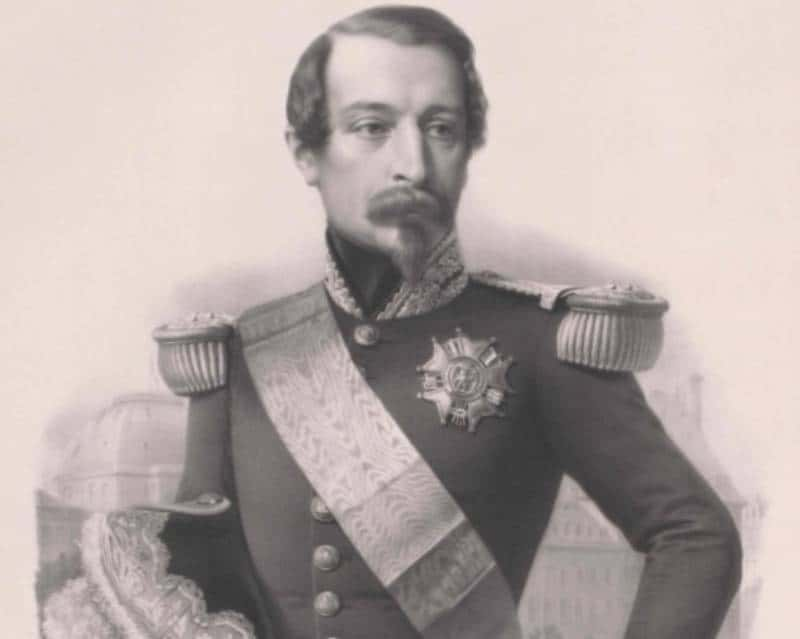 Picryl
Picryl
43. He Made Himself Emperor
It wasn't enough to write a new, remarkably authoritarian constitution: Napoleon III saw himself as heir to Napoleon Bonaparte, and Napoleon Bonaparte was no president. After embarking on a national tour and basking in the adulation of the people, Napoleon III made it official. He was the Emperor of the French. Critics had ridiculed him for years, but they weren't laughing now.
Against all odds, Napoleon had achieved his crazy pipe dream. Now all he needed was a wife—but with a womanizer like him, you know that wasn't going to be so simple.
44. He Went Looking For A Wife
Harriet Howard had basically funded Napoleon's rise to power, but apparently, he didn't consider her "wife" material. He was an emperor now, and he needed a wife who could bring political alliances. Unfortunately, this upstart Bonaparte was in for a rude awakening. He started sending letters to the families of all of Europe's most eligible princesses, inquiring about marriage.
The responses were definitely not what he was hoping for.
45. Everyone Said No
Napoleon III saw himself as a triumphant emperor, but the rest of Europe's royals weren't so hasty. France had been hanging on the edge of anarchy for decades—it seemed like only a matter of time before yet another revolution ripped Napoleon III off his throne. Most of the families he contact gave him a flat, "No". He ended up settling for a minor Spanish countess, Eugenie de Montijo.
Napoleon III was all about the ladies, but he'd never had a wife before: He didn't know it yet, but he was about to get more than he bargained for.
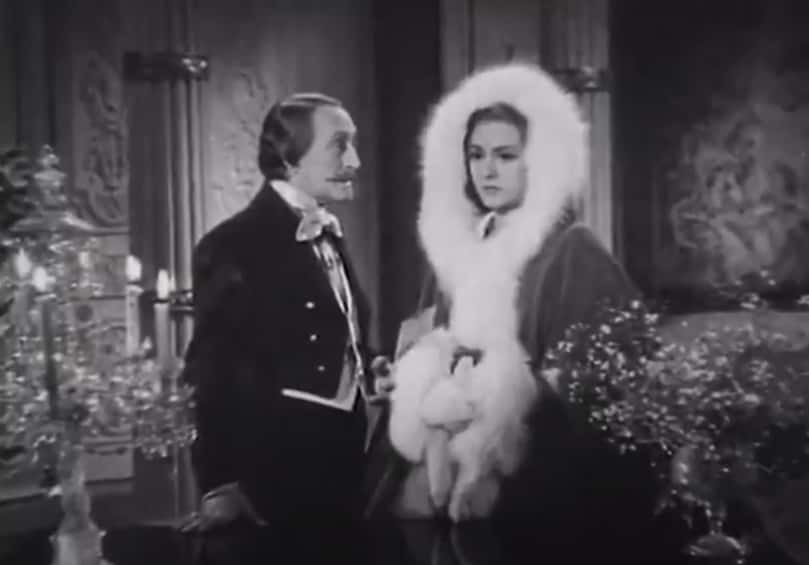 Eugenia de Montijo (1944), Manuel del Castillo
Eugenia de Montijo (1944), Manuel del Castillo
46. His Wife Was Gorgeous
All of the most valuable political matches said no, so Napoleon III settled for a babe. Eugenie was an absolute stunner, and she said yes, so Napoleon put a ring on it. But the countess wasn't like the actresses and heiresses he'd spent his life seducing. When he tried to take her to bed, Eugenie rebuffed him, demanding they wait for marriage. Napoleon, the most insatiable man in Europe, wasn't happy about it.
If you thought this marriage was going to be a fairy tale, I've got bad news for you...
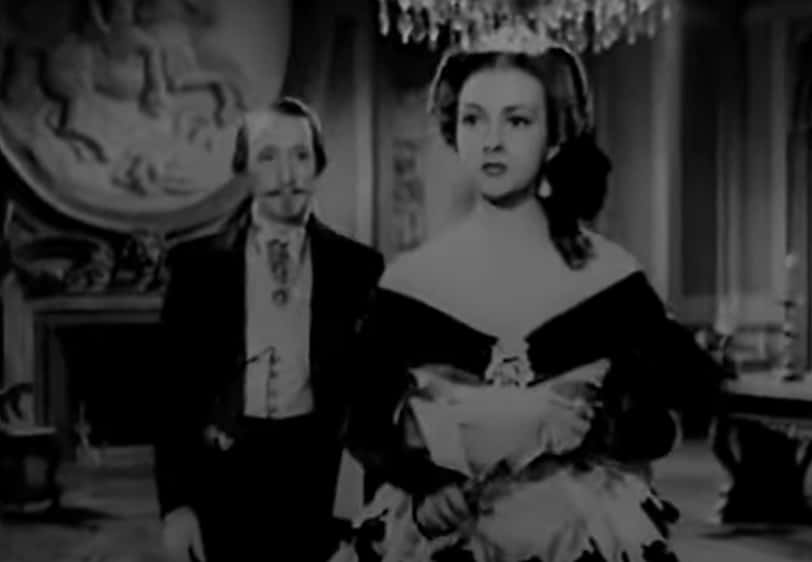 Eugenia de Montijo (1944), Manuel del Castillo
Eugenia de Montijo (1944), Manuel del Castillo
47. He Finally Had An Heir Of His Own
Despite their differences, Napoleon III and Eugenie de Montijo married in 1853. Not long after, they welcomed a son: Napoleon, Prince Imperial. From there, Eugenie took up the ceremonial role of Empress. She entertained guests at the palace, joined Napoleon III at balls and other public events, and represented him when he left the country.
It seemed like Napoleon III had hit the jackpot with his new wife. Few people realized this couple hid a dark secret behind bedroom doors.
48. He Couldn't Stay Faithful
While Eugenie had done pretty much everything Napoleon could have expected and more, that wasn't enough to keep him faithful. As soon as he had an heir to the throne, he ditched his wife and returned to what he called his "petites distractions" with other women. No matter how much power he gained, Napoleon was still a slave to his bad habits. But his womanizing was just the first entry on a long, long list of vices...
49. He Was A Chimney
If women were Napoleon III's number one bad habit, puffing like a chimney was definitely number two. For Napoleon III, counting how many cigs he smoked in a day was pointless. He didn't not smoke. He lit up first thing in the morning, then just kept one lit for pretty much the entire day. Anyone who entered his rooms learned this right away: Smoke hung in the air at all times, clinging to the extravagant art, furniture, and draperies that decorated his chambers.
Not that we support the habit, but in Napoleon's defense, he definitely needed something to deal with the stress. Remember how we told you everything fell apart in the end? Well, those days were about to arrive.
50. His Grip Started Failing
Napoleon III gained his throne mostly through charisma (with a healthy amount of nepotism thrown in for good measure). That's a great way to rise to power, but not great for keeping it. As the years of his reign wore on, Napoleon's grasp on France started slipping. Opposition to his authoritarian policies grew across every political sphere, he couldn't rely on the blanket support of the people anymore.
But political opposition was just one of his problems. Turns out, lighting up at every waking moment has consequences too...
51. His Health Suffered
Though confident and charismatic, Napoleon III was never exactly the healthiest man in the world. Six years in prison had only made his health issues worse. Oh, and the whole "smoke all day every day" thing. To make matters worse, he hated doctors and tended to ignore all of their advice. He kept pouring smoke like a chimney, and simply cranked the heat in his apartments to deal with his painfully swollen joints.
He started walking with a cane, and soon couldn't even mount a horse anymore. Napoleon III was no longer the kind of man who instilled much confidence. The controversial treatment for his illness made it so much worse.
52. He Became An Addict
By 1869, Napoleon III could add "urinary tract problems" to his ever-growing list of maladies. The treatment for it was opium, and while I'm sure that cleared up his pain nicely, it obviously had some troubling side effects. He became, lazy, lethargic, and apathetic to the world around him. I don't know about you, but none of those sound like good traits for the Emperor of France.
An old friend came to visit him after he began using opium, and it wasn't good.
53. His Friend Barely Recognized Him
Lord Malmesbury had known Napoleon III since his days in exile in England. Malmesbury must have been excited to see his old friend, now an emperor, but he didn't like what he found when he arrived in Paris. Malmesbury instantly realized that Napoleon III was "terribly changed and very ill". The man who had fought tooth and nail for the throne was gone.
Unfortunately, France needed that man, because Napoleon III's greatest enemy was gaining power on the horizon.
54. He Had A New Rival
Just as France's leader grew frail and ineffective, its rival Prussia found itself a strapping new chancellor named Otto von Bismarck. Bismarck had grand plans for Prussia, and he planned to achieve them "by iron and blood". Napoleon III stood in the way of those plans, and Bismarck knew weakness when he saw it.
Nearing the end of his life, Napoleon III was in for his greatest fight yet—but was he up to the challenge?
55. He Marched One Last Time
Once Napoleon III had exhausted every diplomatic option, he realized he had no choice. Bismarck wanted iron and blood, and he was going to get it. Although Napoleon III's body was already wasting away, he decided to lead his men from the front lines, just as he had when he was a younger man. He led his forces out of Paris to fanfare and chants of "To Berlin! To Berlin!"
If only those exultant crowds could have known what was coming.
56. He Was Scared
Napoleon put on a confident face for his people, but in private, he was tired and scared. He told his generals that he expected a long and excruciating conflict against the warlike Prussians. In one of his lower moments, he even ominously asked one of his generals, "Who knows if we'll come back?" Napoleon III was right to be afraid—but this fight would go even worse than he feared.
57. He Lost It All At Sedan
The Franco-Prussian conflict was just one misstep after the other, all leading to the catastrophic Battle of Sedan. Napoleon III's forces just weren't up to the task of taking on the elite Prussians. When the dust settled that day, the French had lost 17,000 souls. The Prussians captured 21,000 more, including Napoleon III himself.
But that doesn't describe just how bad it was. The Battle of Sedan was the day that Napoleon III officially hit rock bottom.
58. He Lost His Mind
Reports of Napoleon's actions during the Battle of Sedan are truly disturbing. As the battle grew more and more hopeless, the anguished emperor wandered around aimlessly out in the open as shells rained down all around him. As his doctor grimly put it in his diary, "If this man has not come here to kill himself, I don't know what he has come to do. I have not seen him give an order all morning".
Though one of his bodyguards lost his life and two more were injured, Napoleon managed to survive unscathed to surrender at the end of the day. But the blows just kept falling.
59. His Wife's Response Was Cruel
Napoleon III and his wife never got along well, but her reaction to his loss was particularly cold-hearted. When she heard the news, she shouted, "No! An Emperor does not capitulate! He is dead! They are trying to hide it from me. Why didn't he kill himself! Doesn't he know he has dishonored himself?!" Soon, angry crowds formed outside the palace, furious at Napoleon III's humiliation.
The empress slipped out a side door and fled to England, just like that. Napoleon III wouldn't be so lucky.
60. They Blamed It All On Him
After everything he accomplished, Napoleon III was nothing more than a scapegoat in the end. A newly elected assembly removed him from power and placed the blame for France's defeat at his feet. They arranged a peace with Prussia, and with Napoleon III suitably neutered, Bismarck let the disgraced emperor walk free.
But after a lifetime of clawing and fighting, Napoleon III was finished.
61. He Lost Everything
Just how far did Napoleon III fall? After his release from Prussia, he had no money to his name and could find no support anywhere. He had to pawn the clothes and jewels on his back just to afford safe passage to England. Once he arrived, he entertained no new plans for invasion or rebellion. He just withered away, until he finally passed after complications from surgery—but not before uttering his heartbreaking final words.
62. His Last Words Were Heartbreaking
Napoleon III's confidence in himself and his name propelled him through his entire life. But as he lay dying, disgraced and alone, that confidence finally faltered. As his breathing slowed on January 9, 1873, he clung to his attendant, breathing a question: "Were you at Sedan?" When the man said he was, Napoleon III continued: "Isn't it true that we weren't cowards at Sedan?"
Those were his last words.
63. His Wife Thought He Was Disgusting
There are countless reasons why Napoleon III failed to match his uncle's legacy. Napoleon Bonaparte was one of the most uniquely brilliant people in history, and Napoleon III just couldn't live up to it. However, many of his critics pointed to the same reason to explain why Napoleon III failed: His obsession with womanizing was so all-encompassing that it seriously affected his ability to rule.
But, as far as Napoleon III saw it, he had no other choice. The man was addicted to intimacy, yet he couldn't get any of that from his wife. Eugenie found sleeping with her husband to be, in her words, "disgusting". After they had a child, it's very likely that she never let him touch her ever again. Hey, we're not defending him here, but...that's gotta sting a little.

